Pentagon
On this Memorial Day 2022, a look back & a remembrance
This Memorial Day 2022 in remembrance of all LGBTQ+ Americans who wore the uniform & fought to defend the nation let us honor them all
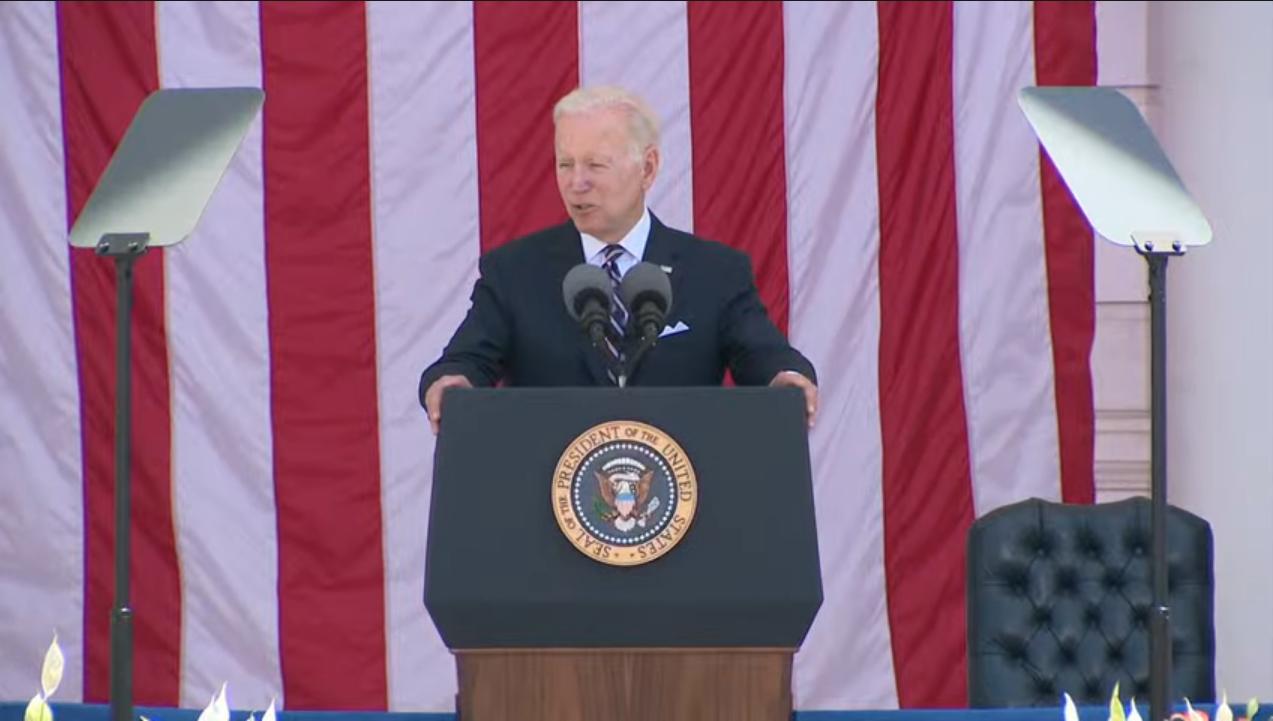
LOS ANGELES – On September 20, 2011, the discriminatory “Don’t Ask-Don’t Tell” ban on gay and lesbian service members was officially consigned to the dustbin of history. For nearly 17 years that ban prohibited gay, lesbian and bisexual Americans from serving in the armed forces of the United States, codifying the message that discrimination was acceptable.
In July of 2017, former President Trump in a series of Tweets banned transgender Americans from serving in the armed forces. Those tweets later became codified U.S. policy by April 2019 after several court battles all the way to the U.S. Supreme Court.
On January 25, 2021, President Joe Biden signed an executive order overturning the Trump-Pence administration’s discriminatory ban on transgender service, which was crafted with members of the extreme anti-LGBTQ group Family Research Council and right-wing think tank the Heritage Foundation.
A Pentagon report summarizes the history of LGBTQ in the military prior to the Clinton era ban of Don’t Ask, Don’t Tell through to modern day:
It wasn’t until 1982 that the military enacted a policy explicitly banning gay men and lesbians from their ranks. Before that, however, same-sex relations were criminalized and cause for discharge. And in the early 1940s, it was classified as a mental illness, disqualifying gay men and lesbians from service.
In 1993, the “don’t ask, don’t tell” policy went into effect allowing closeted LGBTQ people to serve in the military. Under the policy, service members would not be asked about their sexual orientation, but would be discharged for disclosing it. Eighteen years later, Congress repealed the policy, allowing openly gay, lesbian and bisexual people to serve in the military.
Another barrier was lifted in 2013 when spousal and family benefits were extended to same-sex married partners in the military. After ending temporarily in 2016, the ban on transgender individuals was again rescinded in 2021, allowing those who don’t identify with their biological gender to enlist and serve in the armed forces.
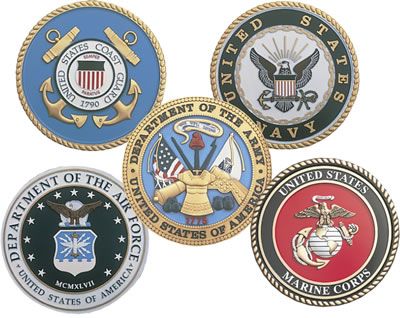
For LGBTQ+ military personnel and their families there are still obstacles. This past week it was learned that a draft policy is circulating among top officials of the U.S. Army that would allow soldiers to be able to request a transfer if they feel state or local laws discriminate against them based on gender, sex, religion, race or pregnancy. Pentagon sources say that there is good chance that a Department of Defense review for all services could possibly follow.
The reason for the policy has been the overt hostility by Republican lawmakers in nearly thirty one states over the past three years introducing, passing, and then getting signed into law measures that specifically target LGBTQ+ people in areas including erasure of LGBTQ+ people in grammar and secondary education, barring trans youth from playing on sports teams that match their gender identity, and a probable overturn of Roe v. Wade dramatically impacting women’s rights in their healthcare especially reproductive choices.
In those years prior to open service after 2011 and before the ‘Don’t Ask-Don’t Tell’ era there was one extremely brave American Vietnam War veteran, the first documented gay service member to purposely out himself to the U.S. military to fight the ban on gays, and perhaps the best-known openly gay man in the United States of America in the 1970s next to San Francisco Supervisor Harvey Milk, himself a veteran of the U.S. Navy.
In 1955, Milk resigned from the Navy at the rank of lieutenant, junior grade, forced to accept an “other than honorable” discharge and leave the service rather than face a court-martial because of his homosexuality.
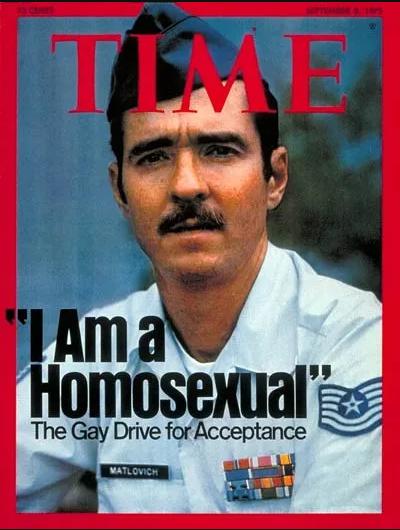
That man was U.S. Air Force Technical Sergeant Leonard Matlovich.
Matlovich, encouraged by another military veteran and prominent gay rights activist, Franklin Kameny who served in the U.S. Army throughout World War II in Europe, Outed himself as he and Kamney challenged the military’s ban on homosexuals serving.
Wikipedia notes that his fight to stay in the United States Air Force after coming out of the closet became a cause célèbre around which the gay community rallied. His case resulted in articles in newspapers and magazines throughout the country, numerous television interviews, and a television movie on NBC. His photograph appeared on the cover of the September 8, 1975, issue of Time magazine, making him a symbol for thousands of gay and lesbian servicemembers and gay people.
Prior to Matlovich’s case there were literally tens of thousands who stayed in the closet, serving in in uniform in silence with only glimpses of their true selves captured in candid photographs and kept secretly in most instances only to be discovered years later by family members or even as just curios in antique stores or online marketplaces.
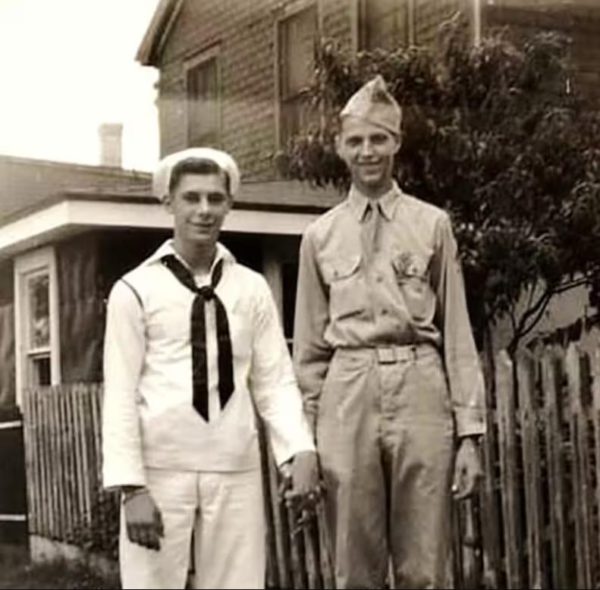
On this Memorial Day 2022, in remembrance of all of the LGBTQ+ Americans who wore the uniform of their country and fought to enshrine the freedoms and rights that they- themselves didn’t directly benefit from and some, who like Leonard Matlovich were wounded and awarded the Purple Heart and other medals, let us honor them all.
This reporter wrote a story in 2013, two years after the repeal of Don’t Ask-Don’t Tell, about the legacy of the service of one set of those long ago gay military personnel which follows.
For a lost soldier…
By Brody Levesque | ARLINGTON, Va. — Every year that I have lived and worked in this city I have always gone to Arlington National Cemetery to observe the Memorial Day ceremonies.
Afterward, I wander through the grounds, just to watch, maybe to listen, but mostly to contemplate on the sacrifices made by those brave souls whose final resting place has become hallowed ground — a literal garden of stones.
Arlington’s rolling hills are a place of extraordinary beauty, a fitting repository for the memory of the living history of the United States. Names from the history books leap off the pages as one strolls through the grounds: “Byrd, Taft, Lincoln, Kennedy, Rickover, Marshall, Pershing,” followed by the names of the thousands of soldiers, sailors, airmen, and coast guardsman who gave their lives to secure the freedoms promised by the American Constitution.
In his remarks today, President Barack Obama reminded Americans they must honor the sacrifices of their military service members, particularly as U.S. combat roles change and the nation’s involvement in Afghanistan is winding down.
Adding that Arlington “has always been home to men and women who are willing to give their all … to preserve and protect the land that we love,” the President praised the selflessness that “beats in the hearts” of America’s military personnel.
Obama’s words stuck with me as I walked along through the ocean of gravestones, pausing occasionally to read the names, the inscriptions, and wonder what each person was like.
Scattered throughout the graves proudly marked with miniature American flags fluttering in the bright noontime sunlight, I observed families, loved ones, and friends who had come to honor their fallen.
Then I happened upon one grey haired older gentleman standing quietly in front of a headstone, obviously lost in his thoughts. As I tried to unobtrusively move around him, he look up at me and smiled.
I greeted him, and he greeted me back. He saw my press credentials hanging from my neck and asked whom I worked for.
I told him, momentarily wondering what type of reception I’d receive as, let’s face it, the LGBTQ community still has its detractors, and to my shock, he looked back at me, with tears forming in his eyes.
“You’re gay?”
“I am,” I answered.
“Lot of changes since I was a, a kid,” he trailed off. I pointed at headstone and quietly asked if the person was a friend or a family member.
“He’s my, well was my best bud, yeah, I dunno…”
The gentleman looked stricken and it was certainly not my intention to interview him, impromptu or not. But yet I sensed that something was left hanging so I took the plunge and asked him for a few details, if he didn’t mind sharing them. As it turns out, that’s exactly what he wanted… to share, to have a conversation about the person whose grave we were standing over.
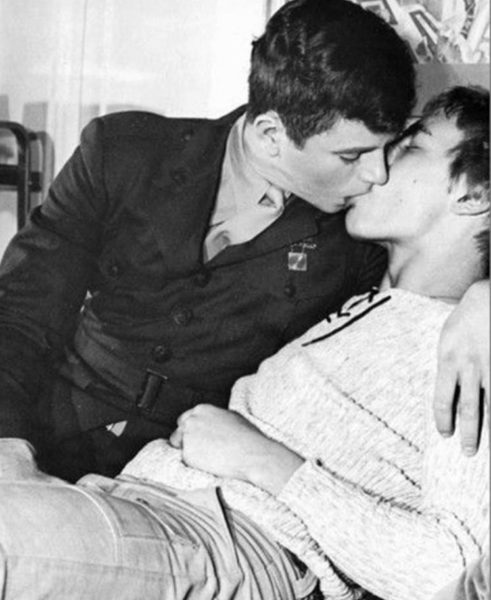
The two men had grown up in eastern Ohio, in a small rural farming community. They played football, went fishing, did farm work, and discovered that after a few failed attempts at pursuing the fairer sex, their real romantic interests laid in each other.
By the time they had graduated from high school, the Vietnam conflict had escalated and, rather than wait to be drafted, they decided to join the U.S. Marines together. They went to boot camp, and not long after graduation, found themselves on troop planes headed for Vietnam.
“We were lucky,” he said, “We both got assigned to the 2nd Battalion, 26th regiment.”
But good luck turned sour as their battalion found itself in the middle of one of the nastiest battles of the 1968 Tet Offensive in the battle for Khe Sanh.
“I lost him that morning,” he told me, pointing at the inscribed date of death on the simple white marker — February 7, 1968. “He was just 19.”
The tears came freely and I waited. Then we talked some more.
He told me that after he lost his love, “I went straight and got married.” Just a fews years ago, he lost his wife to cancer.
He has grandkids that he says will never know the truth — he just can’t be open with them, but at the same time, never does a day go by that he doesn’t think about and mourn the loss of his friend, his partner — and the promise of what might have been.
“I was glad to see DADT end,” he told me. “At least some other couples won’t have to hide like we did.”
I thanked him for his service and his time talking with me and walked away reflecting on all of the unknown LGBT military folk buried around me who, like that lost soldier, suffered in silence and hid, yet still believed in a greater good of which they ultimately gave their lives for their country.
As the American nation celebrates this solemn holiday, let us not forget them.
Addendum:
REMARKS BY PRESIDENT JOE BIDEN AT THE 154TH NATIONAL MEMORIAL DAY OBSERVANCE
Arlington National Cemetery, Arlington, Virginia
The President:
They lie here in glory and honor — in quiet rows in Arlington, in cemeteries in Europe that I visited and many of you have, in graves across our country, in towns large and small — America’s beloved daughters and sons who dared all, risked all, and gave all to preserve and defend an idea unlike any other in human history: the idea of the United States of America.
And today, as a nation, we undertake a sacred ritual: to reflect and to remember. Because if we forget the lives that each of those silent markers represent — mothers, fathers, siblings, spouses, children — if we forget what they sacrificed, what they made so that our nation might endure strong, free, and united, then we forget who we are — who we are.
Ladies and gentlemen, our First Lady and the love of my life, Jill; Vice President Harris and the Second Gentleman; Secretary Austin; General Milley; the Joint Chiefs of Staff, Cabinet members; Gold Star families, most importantly; and survivors: Today we renew our sacred vow — it’s a simple vow: to remember. To remember.
Memorial Day is always a day where pain and pride are mixed together. We all know it, sitting here. Jill and I know it. Today is the day our son died.
And, folks, for those who have lost a loved one in the service of our country, if your loved one is missing or unaccounted for, I know the ceremonies reopen that black hole in the center of your chest that just pulls you in, suffocates you.
As I said, seven years ago today, our son, Major Beau Biden, took his last breath at Walter Reed. A major in the Delaware Army National Guard, he insisted on deploying to Iraq
with his unit for a year when he was attorney general. He came home a decorated soldier, a Bronze Star, Legion of Merit, and Delaware’s Conspicuous Service Cross.
He didn’t die in the line of duty. He came home from Iraq with cancer. It was a horrific cancer that stole us from him, stole — and him from us.
But still, it always feels to me on Memorial Day — I see him, not as he was the last time I held his hand, but the day I pinned his bars on him as a second lieutenant.
I see him with me down at the Delaware Memorial Bridge hugging all the Gold Star families.
Days like this bring back, before your eyes, their smile and their laugh. And the last conversation you had, each of you know it.
The hurt can be overwhelming. But for so many of you, as is with Jill and me, the hurt is wrapped around the knowledge
that your loved one was part of something bigger — bigger than any of us.
They chose a life of purpose. It sounds corny, like a Memorial Day speech, but I mean it from the bottom of my heart. They chose a life of purpose.
They had a mission. And above all, they believed in duty; they believed in honor; they believed in their country.
And still today, we are free because they were brave. We live by the light of the flame of liberty that they kept burning. And so a part of them is still with us no matter how long ago we lost them.
And as hard as it is for many to believe, especially those whose loss is still raw, I promise you the day will come when the memory of your loved one, your patriot, will bring a smile to your lip before it brings a tear to your eye. That’s when you know you’re going to make it.
Today, America’s ser- — American service members stand watch around the world, and, as many of you know, often at great personal risk.
And this Memorial Day, we know the memory is still painful
of all the fallen who lost their lives during the last two decades in combat. Each of them leaving behind a family, a community. Hearts broken by their absence, and lives that will never be the same.
We see in the hundreds of graves here in Section 60, at Arlington, a reminder that there’s nothing low-risk or low-cost about war for the women and men who fight it.
7,054 American military members gave their lives over 20 years of our Iraq and Afghan conflicts. Untold others died of injuries and illness connected to their service and these wars.
And the enduring grief borne by the survivors is a cost of war that we’ll carry as a nation forever.
And so, to every Gold Star family, to every survivor and family member and caregiver: This grateful nation owes you as well as that person you lost.
And we can never repay the sacrifice, but we will never stop trying. We’ll never fail in our duty to remember: With their lives, they bought our freedom.
And so, with our lives, we must always live up to their example — putting service before self; caring for our neighbors as ourselves; working fervently to bring our union just that much closer to fulfilling the founding creed, as the Secretary said, that all men and women are created equal.
I’ve often said that, as a nation, we have many obligations. But the only one that is truly sacred — the only truly sacred obligation we have — is to prepare and equip those women and men we send into harm’s way, and care for them and their families when they return home and when they don’t.
This is an obligation that unites Americans and brings us together — to make sure the women and men who are willing to lay down their lives for us get the very best from us in return.
I want to acknowledge that we’re making progress in key areas like the comprehensive, bipartisan legislation that is advancing in Congress that will deliver healthcare services and benefits to veterans and their survivors impacted by toxic exposures.
We don’t know how many Americans and service members may have died because of what they were exposed to on the battlefield. The toxic smoke from burn pits near where they were based — burn pits that incinerated the wastes of war, medical and hazardous material, jet fuel, and so much more.
But we have a duty to do right by them. And I am determined to make sure that our brave service families and members that served alongside them do not wait decades for the care and benefits that they deserve. And that’s why — that’s why we’re working so hard to find out what the facts are. Where we can still save lives, we have to act.
All of us also have a duty to renew our commitment to the foundational values of our nation, in their honor — for those are the values that have inspired generation after generation to service.
On Friday, I spoke at the graduation and commissioning of — ceremony of the U.S. Naval Academy. I had an opportunity to do that before as well. It was a remarkable experience again, an honor, looking out at those young men and women — newly commissioned officers — embarking on a life of service.
They hold before them the example of the heroes who have gone before them — many of you are family members — heroes who have answered duty’s call at Lexington and Concord, Antietam and Gettysburg, Belleau Woods and thee Battle of the Bulge, in Korea and Vietnam and Afghanistan, Iraq, and so many other places around the world — so many of whom never returned home, including the legacy of all those held prisoners of war or who are still missing in action.
To be here today, soon after that joyful celebration at the Academy, is a bracing reminder of all that we ask of our service members and their families — for it’s on the strong shoulders and noble spirits of our service members that our freedom is built, our democracy sustained.
And in this moment, when a war of aggression is once more being waged by Russia to snuff out the freedom, the democracy,
the very culture and identity of neighboring Ukraine, we so — we see so clearly all that’s at stake.
Freedom has never been free. Democracy has always required champions.
And, today, in the perennial struggle for democracy and freedom, Ukraine and its people are on the frontlines fighting to save their nation.
But their fight is part of a larger fight that unites all people. It is a fight that so many of the patriots, whose eternal rest is here in these hallowed grounds, were part of.
A battle between democracy and autocracy, between liberty and repression, between appetites and ambition of a few
who forever seek to dominate the lives and liberties of many.
A battle for essential democratic principles — the rule of law, free and fair elections, freedom to speak and write and to assemble, freedom to worship as one chooses, freedom of the press — principles that are essential for a free society.
You’ve heard this a lot. You’ve heard this a lot over the years, but we’re now realizing how real it is around the world in so many countries as I speak. These are the foundations of our great experiment, but they are never guaranteed, even here in America.
Every generation has to defeat democracy’s mortal foes. And into every generation, heroes are born, willing to shed their blood for that which they and we hold dear.
Ladies and gentlemen, today we remember and we reaffirm: Freedom is worth the sacrifice. Democracy is not perfect; it’s never been good — perfect. But it’s worth fighting for; if necessary, worth dying for.
It’s more than just our form of government, it is part of the very soul of America. The soul of America.
Our democracy is our greatest gift as a nation, made holy by those we’ve lost along the way. Our democracy is how we undertake the constant work of perfecting the union — and we have not perfected it, but we’ve never stopped trying; of opening the doors wider of opportunity and prosperity and justice for people everywhere.
Our democracy is how we endure through every challenge, overcome every obstacle we faced through the last 246 years of self-government, and how we’ve come back stronger than before.
We must never walk away from that. We must never betray
the lives laid down to make our nation a beacon to the world —
a citadel of liberty and justice for everybody.
This is the mission of our time. Our memorial to them
must not be just a day when we pause and pray, it must be a daily commitment to act, to come together, to be worthy of the price that was paid.
May God bring comfort to all those who mourn. May God bless our Gold Star families and survivors. And please, God, protect our troops.
God bless America and all of you. Thank you.
Pentagon
Five transgender service members speak out as Trump pushes military ban
They boast a combined 77 years of experience in four branches of the military
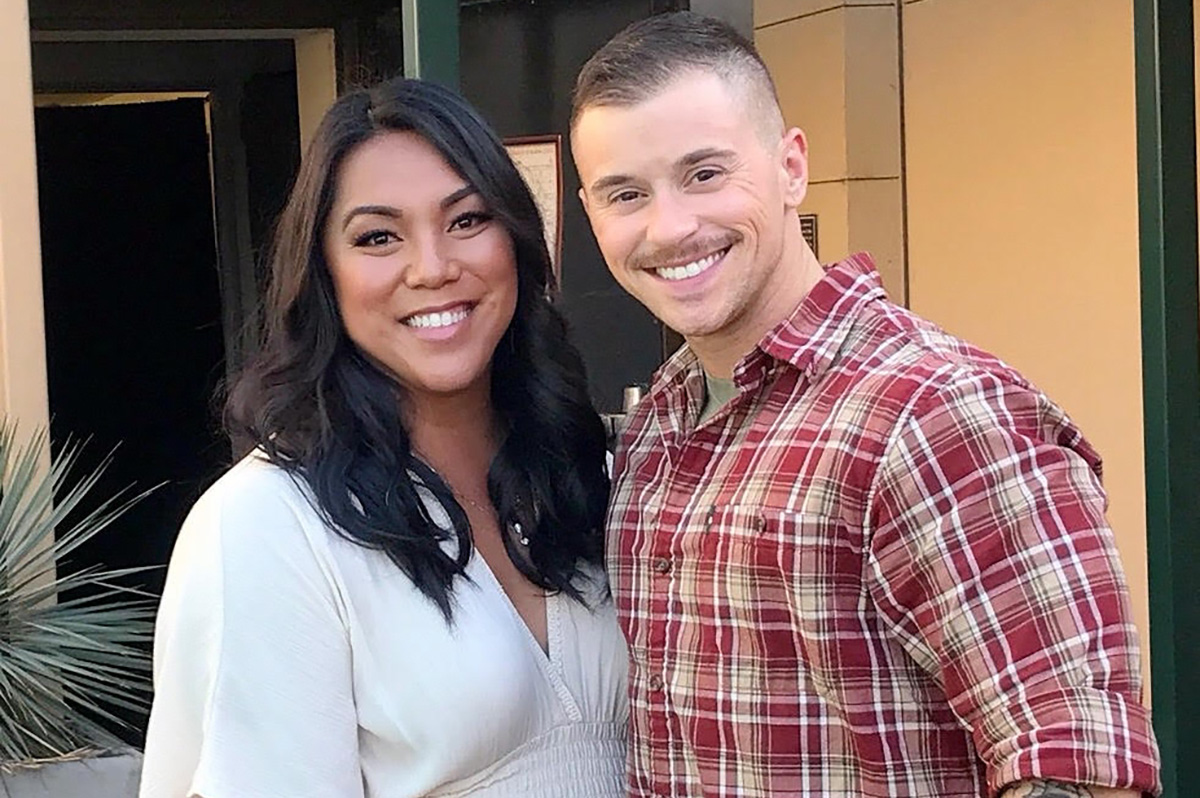
Leading up to President Donald Trump’s issuance of an executive order on Monday instructing the Pentagon to explore banning transgender service members from the U.S. armed forces, the Washington Blade spoke with five sources who, according to the new administration, lack the “readiness, lethality, cohesion, honesty, humility, uniformity, and integrity” required to serve.
Together, they boast a combined 77 years of experience in four branches, where they had either enlisted or joined as commissioned officers. Three are currently serving, while two have retired. Several have seen combat in overseas deployments.
While the details of how the Pentagon plans to exclude trans service members are not yet fully clear, Sue Fulton, who served as assistant secretary of veterans affairs for public and intergovernmental affairs, noted that “you’re talking about undertaking administrative processes that are going to require people and paperwork and meetings and working groups and the promulgation of new rules and policies — all with the intent of removing capable, lethal, proven warriors from their positions.”
“Transgender Americans have been serving honorably for decades and have been serving openly for almost 10 years,” she said. “And the acceptance level, there’s a study that [found] about the same percentage of military folks, about 70%, have no issues with transgender service members, which is the same percent as the general population.”
Fulton, who commissioned in the U.S. Army after graduating from the U.S. Military Academy at West Point as a member of the first class to admit women, is not transgender, though she has served as president of SPARTA, a group comprised of trans service members and former service members. An out lesbian, Fulton has been an advocate for women serving in combat roles, and she was involved in the effort to repeal “Don’t Ask, Don’t Tell.”
Her insights are buttressed by the testimony of trans service members who shared their experiences with the Blade over the past week. Interviews with Fulton, along with trans service members and veterans Logan and Laila Ireland and Alivia Stehlik, were conducted during the National LGBTQ Task Force’s Creating Change conference in Las Vegas.
Senior uniformed service member, O-6 rank, who spoke on the condition of anonymity
- I’ve been out in the LGBTQ+ community since I was 17. And I came into the service knowing that under ‘Don’t Ask, Don’t Tell,’ I would have to go back in the closet. So, I served under ‘Don’t Ask, Don’t Tell’ for 10 years, and it was kind of like you had two lives.
- It was very hard. It was very hard for years. You always had to have eyes in the back of your head, a little bit, like watching — if you go out, is somebody there seeing you? If you went out to a gay club, are people watching?
- But the missions and the work that I did in the service — it was the missions that I was just drawn to. I always think about, ‘why did I stay in?’ It was my commitment to selfless service. I have always wanted to serve this country, and I felt a sense of pride every day as I put on the uniform and did the work.
- Under the Trump 1.0 ban, that is when I was really working on figuring out that I was trans. Going back to his inauguration in 2017 and his announcement, by tweet, that he was banning trans service members, at that point I had acknowledged, to myself, ‘yeah, I know I’m trans.’
- In 2017, I just halted everything and said, ‘Okay, well, I can’t do anything for three years now. Even if I wanted to transition.’ So, I talked about it with my friends, I talked about it with my spouse at the time, and it was just something I talked about.
- Just like I knew that ‘Don’t Ask, Don’t Tell,’ would go away, I knew that at some point this would change. So, I kind of held it all in for those three years. And then after Biden was elected, and he rescinded Trump’s ban, the door was opened for me to then come out if I wanted to.
- At that point, I began to really think about if I wanted to transition or not. Now, at the rank that I was in, as an O-5, I was thinking about coming out, but I was in a command position. I was second in charge of a command at the time, and all eyes were on me. So, it was a big decision whether or not to come out.
- When I was able to then come out early into the Biden-Harris administration, I was also up for a promotion to become an O-6. If I didn’t make O-6, then I would retire, because if you don’t make the promotion, you kind of get forced to leave the service. And then I would have come out as trans as a civilian.
- Ultimately, of course, I was promoted and I made the decision, ‘Okay, I want to come out, I want to, publicly, start the transition. And I want to transition in the service.’ It’s very difficult to come out in that space.
- In April it will be three years. I did some of my paperwork behind the scenes prior to coming out. Then, I came out to my staff and the folks that work for me. But since then, my staff has been amazing. It’s wonderful. And my leadership has been truly amazing.
- I started changing my usage of the bathrooms fairly quickly, and changing how I dress and how — the biggest thing is how people gender me. People had no problem. There would be ‘oops’ once in a while. And they knew that it didn’t bother me, like, I could just kind of let it go. But everybody’s been amazing.
- I’ve become this leader in the service that other LGBTQ members and especially trans service members look to as a role model or mentor. I get calls all the time from folks who want help as they’re going through things or need for their confidence to be boosted so they can keep going.
- Without the trans military ban, I could imagine myself becoming the first trans member to take over a command in this service. I don’t believe a trans person has ever taken over a command service-wide. I could see myself definitely going longer and being looked at as kind of that beacon of leadership in the LGBTQ+ realm.
- I’m keeping everything on the table. I am working on things so that if I have to transition out of the military this summer via TAPS [The Transition Assistance Program] my medical record is complete and all of my administrative work is done. There’s courses you have to take, paperwork you have to do, things like that.
- I have put my retirement letter in for a specific time next year. I’m already eligible to retire now, but you have the option to always pull it back, so it’s there as kind of something that I could also work towards. So if I don’t get processed out this summer, I could leave that as a time frame that I could process out to.
- At the moment, the biggest thing I’m feeling is anxiety. I’m just anxious about the uncertainty of what the future holds. I’ve given over 24 years to this nation. Selfless service. It just feels like that’s being erased, being forgotten about. And that’s my life’s work — just thrown, thrown away. You know?
- There are not many people who want to serve anymore. We’re in a recruiting and retention crisis across the board. It doesn’t matter what service you’re going in, they’re having a hard time getting people in and they’re having a hard time keeping people. And to want to push somebody out that has given their entire adult life to an organization, but then also to the nation, it’s just really unfortunate and sad that for everything that I’ve done, the hard work that I’ve done, the work that I’ve done, for the government to just kind of say that you are no longer able to serve. We just don’t want you because you’re trans.
- What I have found in my leadership career and working with teams, because I’m so such a team-oriented person, that people coming with different ideas and different backgrounds is such a benefit.
- [Even with Navy SEALs, they try to make teams with people who have different personality traits.]
- I want somebody on my team that has gone through adversity. And it can be that somebody has been in the LGBTQ+ community, that has gone through, you know, figuring out their authentic self. But I think it’s also somebody maybe that has gone through something different that is difficult, whether it was loss of a spouse or a really nasty divorce, somebody that has gone through pain, somebody that has really gutted it out. That’s somebody I want on my team, because they have felt that rock bottom feeling, and know how to be resilient enough to come out of that.
- There are trans members that are also in positions that it’s going to take a lot of time. We’re looking at, like 15,000 across the whole military. There’s folks in the intel community in positions that take a lot of training to get to where they are, and 15,000 people pulling out, that’s an issue of national security, in my opinion, national resilience, right?
- The service will have to scramble to find my replacement. And there will be big holes in locations.
Former U.S. Army Captain Sue Fulton
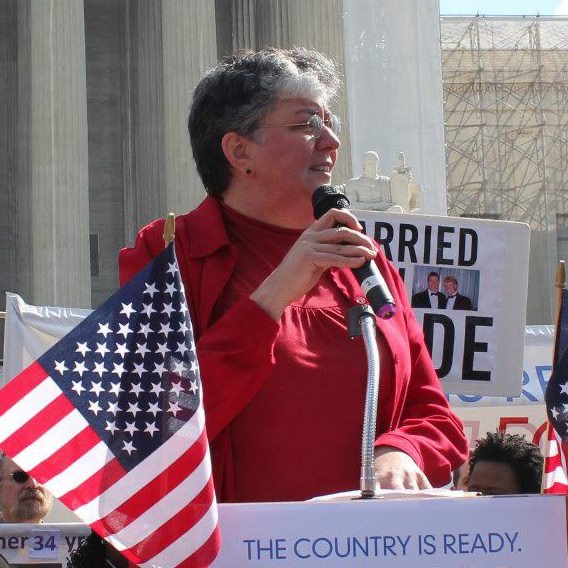
- [With the trans military ban] You’re removing trained, skilled people from the force. It disrupts readiness, it disrupts unit cohesion, it disrupts morale, it disrupts the team. So the real problem with doing this is that you’re negatively impacting readiness. And I know those are buzzwords, but the impact is real.
- To my knowledge, this is unprecedented, discharging a swath of qualified, proven military members for a characteristic that isn’t uniformly tracked. Any way you do this, it’s going to be kind of a mess. Some trans folks have a gender dysphoria diagnosis; some trans folks don’t. There’s no descriptor in your records that says, you know, ‘T’ for ‘transgender.’
- Whether it’s an administrative separation or a medical separation, an individual discharge would require a board for each individual to determine their fitness for duty. Every hypothesis I’ve heard for how they might implement a ban presents problems for the military.
- So, I understand that there’s been a lot of rhetoric around this issue, but we have been unsuccessful in predicting exactly what action will come out of this administration.
- Rand [Corporation] — who had predicted that it could cost up $150,000 per service member per year to have transgender folks serve — went back after trans folks were allowed to serve openly, to see what the costs actually were. And it was less than $1,000 per transgender service member per year, which I don’t need to tell you, is like an average military service member’s prescription costs per year.
- Statistically, there is no greater cost to care for a transgender service member than for any other service member. There is data on that. Rand has that data. They originally assumed that each service member would get every possible surgery including surgeries that change appearance — shaving a trachea, there’s a whole variety of surgeries that trans and cisgender people can get to change their appearance. And there was an assumption that every trans service member would get all of these procedures, that they wouldn’t have maybe gotten them before they had joined. The idea that they would choose not to have all these procedures, which is what has happened, wasn’t considered. The reality is we know trans service members will often get surgeries on their own dime outside the military.
- Fundamentally, transgender people want to appear to others as the person they feel like inside. And that doesn’t necessarily require a suite of, the full set of surgeries. Everyone wants to appear on the outside as they feel inside. And the military actually performs surgeries for people who are not transgender to change their appearance when there’s something that bothers them deeply. The whole conversation around transgender medical care and surgeries is fraught with myths.
- Bottom line: Transgender service members don’t cost more. They deliver at least as well — at least as well — as their counterparts in the military. And many people, because they feel the need to overachieve, will exceed standards on the regular. And we see that, we hear that from commanders, we hear that from senior leaders, and that has to be taken into account.
- I went to West Point in 1976 in the first class to include women. And since that time, almost 50 years, there have been a series of decisions opening the military or opening parts of the military to additional groups of people, whether it’s women, whether it’s gay and lesbian folks, whether it’s Sikhs.
- The Department of Defense is slow to change, but it makes sense. Recall, it’s [the largest government agency in the United States] and so if you’re going to make changes they’re going to affect millions of people. They want to go through a process where they look at how rules are written so that they can be implemented down to the lowest level of command. Ultimately, there’s an announcement — it’s like, this change is happening — but understand that the change takes months, if not years, in any case.
- I don’t know if we’ve ever seen a whole class of people who are serving without issues, without problems, who are serving honorably and effectively, summarily kicked out of the armed forces.
- I can’t recall a time when that happened. You know, there are many ways to kick an individual out of the military. If they fail to meet standards, if they are no longer medically capable, if there’s misbehavior. All of those things can happen. There are lots of ways to exit the military for individuals, but for a whole class of people, without any evidence of failure to be summarily kicked out, I don’t think there’s a precedent for that. And there shouldn’t be.
- We have trouble staffing our Armed Forces today, and there are not a lot of people who are willing and or able to serve in the United States Armed Forces. We have people who are willing and able — who have the competence, the character, and the commitment to serve. We believe they should be allowed to serve. The very notion that you would want to exit a whole class of people from the military is dangerous to our security.
- [To separate an individual from the military] there are medical boards, if someone is no longer medically qualified to serve. There are administrative boards that cover a whole host of issues like misbehavior that doesn’t rise to the level of court martial.
- The reason there are boards is that you have, first, a commander initiate it — so the commander believes this person should no longer serve. There’s evidence presented, whether it’s medical evidence or other kinds of evidence from the the leaders of that individual, and it’s presented to a board, often headed by a general officer. You’ve got to convene that board. You’re going to take the time of these people away from their day jobs, because it’s not their full time job, right, in general. And they review, does this person belonging in the military or not? Now, you know, that’s a deliberate process. It can be sped up to maybe three months. But that’s for each individual.
- When you have an organization the size of the U.S. armed forces, that’s why these processes are created. And no one loves the bureaucracy of the military, especially not people in the military, but that is the way that it operates in order to ensure that the best people are retained and unqualified people are not.
- When we worked on the repeal of ‘Don’t Ask, Don’t Tell,’ it was very persuasive to argue that service members should not just be allowed but encouraged to be their authentic selves, because the bonds that make for an effective unit, the trust that you build with the people you fight next to, are essential to winning. It is essential for people to have a level of trust with each other when they’re in harm’s way. And we get the mission done not as individuals; we get the mission done as teams. If you’re forced to lie to the people around you about who you are, that gets in the way of building the high performing teams that we need in the military.
- I went to West Point. I worked with a lot of women combat veterans. I have never been so floored by the courage of a group of people as the transgender service members, experiencing what the world says to trans people, experiencing what the military says to trans people, and [still sharing their stories].
- Even in the [Senate] hearing for [Pete Hegseth’s nomination for] secretary of Defense, there were some questioners who wanted to know how many push ups you could do and do you know what caliber of bullet goes into an M4 rifle? It trivializes the complexity of having a war-fighting military organization that can meet the challenges of the 21st century.
- You need everyone to be at the top of their game, and this nonsense about ‘well, we’re going to police gender’ and we’re not going to talk about how Black people served in the military, or how women served the military, in history, to learn from our history. That [instead] we’re only going to focus on your weapon and your physical fitness. It doesn’t build a team that has a broad range of problem solving abilities.
U.S. Air Force Master Sergeant Logan Ireland

- I’m within OSI and my main job is to work in the Indo-Pacific with some of our host nation and coalition partners. One thing that I absolutely love about my job are the travel opportunities, the education benefits that I’ve been afforded to have, working with some of our foreign partners, made some awesome friends in many different countries. I’ve been able to be stationed in South Korea, UAE, deployed to Afghanistan, Qatar. I’ve had a great career, had a great experience, and that’s all been just by being visible and being the best troop that I can be.
- I just hit my 14 years. So when I first came in, I came in as security forces. I always wanted to be a cop. Have a couple people that are in law enforcement in my family, and I just kind of wanted to take on that lineage. Plus, going to college was pretty expensive. I was in a bachelor’s degree, and it was just kind of like being a hamster in a wheel, working all the time, going to college, and wanting to do something more. So, going into the military for education benefits and travel, I mean, I saw that as my number one ticket, so I enlisted in the military, the Air Force was my number one choice, got to be stationed at awesome bases, and throughout my career, I’ve had amazing leadership that have allowed me the space and the voice to serve authentically and be myself, but also holding me to the standard.
- And with what I’ve tried to do with my service, I always want to try and exceed that standard, to show other people that, hey, I’m here doing this as a good service member, raise their right hand, just like everybody else. I happen to be transgender, but that’s just one pillar of who I am and what my service represents.
- I do that because there’s going to be someone that’s one day going to come after me that wants a seat at that military table, and they want to see me being a visible trans person, because maybe they are [trans], or maybe there’s someone from another marginalized community that doesn’t know if military has a place for them. By being visible and showing that, hey, I’m doing it, exceeding the standard, you can do it too.
- I think that brings a lot of value, especially when we’re in a military that, you know, is somewhat at a recruiting deficit. You know, we want to try and bring the best and the brightest that meet the standard and want to raise their right hand to serve.
- We never came in the military to get that praise from someone else. We did it for the brothers and sisters to the left and the right of us. And for other people, especially trans people, the military was their only option. You know, they needed that financial stability, those education benefits. Maybe they wanted to travel, find a place of being and a place to serve authentically.
- The military gives them that option. It’s the number one employer of transgender individuals. Most of the people that are transgender in the military now are at the senior non commissioned officer level with an average of 12 years of service. So we bring a lot of value to the military by serving. And for those that are coming into the service, we are their supervisors. We are there to help them integrate into the military and show them all the benefits that the military has given to us.
- something that I do on the side working with SPARTA is actually helping those that are accessing into the military. A civilian who is joining the military goes through what’s called accession standards when they process through the Military Entry Processing Station (MEPS). we have a subgroup in SPARTA called SPARTA Future Warriors, and currently we have over 660 members in that group that are aspiring to join the military. These are all transgender individuals. These individuals meet the standard. Or they will be meeting the standard, because they they see now what they have to do, and we help them get to MEPS, answer some of their questions. We help them with that process of getting into the military.
- And I’ll be frank, these are some shit hot people we need in the military. We got people coming in that want to be pilots, that want to be JAG Officers, that want to be doctors. Some of them are those on the civilian side. You know, we just had one that swore into MEPS, and he got an Air Force Special Warfare Division contract, a special operations contract, who happens to be trans.
- It means a lot to me, you know, to see people coming after us. We don’t do this for ourselves. We don’t share a story for ourselves. I’ve had a great career, but we want to do it because there’s a lot of people that are going to come after us, and it matters to them. They want to find a place in the military. They want to serve authentically, and I hope that they have that chance, just like we were afforded that opportunity to have that chance.
- I came in wanting to do law enforcement. I was able to do that right. I wanted to go be working for the Office of Special Investigations. I’m able to do that. Most recently, I just put in a package to go through Officer Candidate School. I’m really hoping that I can have that opportunity, and the Air Force allows me to do that.
- And I think a trans person looking from the from the outside in sees opportunity. They see that placement and access that the military can provide to them, that community, that they may not have otherwise in the civilian sector.
- If they are willing to sacrifice their life for someone else so their children don’t have to serve, why not give that opportunity to that person? Why not give them the same benefits? They meet the standard — that’s the number one most important thing — but let’s afford them that opportunity.
- This is an amazing community, an amazing organization, an amazing employment opportunity for people, and we want to make sure that everybody has that seat at the table to serve.
- I don’t want to speak entirely for the military community, but I know a lot of us share that same mindset of, yeah, I don’t care who’s in the foxhole with me, I just want you to be able to meet the standard and return fire. That’s it.
- I’m still driving forward with my my career. I put in an officer package. I have my degree. I’m qualified. I meet the standards. In fact, I got the top endorsement recommendation by my commanding general…’m hoping to eventually become an officer.
- The military is something that I want to do until they say, ‘Hey, you are no longer needed,’ and hopefully that is well past 20 or 30 years, but I don’t have any plans to get out. This is everything to me.
- I’m looking towards my future in the military, in uniform. I’m not looking towards, well, what am I going to do as a civilian? The military taught me how to fight, and they taught me resiliency. So I know that I’ll make it. I know I’ll be okay. But right now, I just want to prove that, hey, I’m here. I’m of value to the military. This is just as much my military as anybody else’s.
- I would like to see the data that says that, you know, we we can’t do this anymore. We were worldwide deployable. Everywhere that there’s a war zone going on, a transgender service member has served.
- On order to transition, we have to go seek the approval of medical, you know, seek the approval of our commanding team as well. There is a process, just like anything else, just like if a military member wanted to get an elective surgery, if they were non trans, there’s still a process in place, because the military is based on these standards.
- When I was deployed to Afghanistan, nobody knew that I was actually born female. And I didn’t have a FUD [female urination device] or anything like that. And we’re doing outside the wire, missions, so in harm’s way, incoming, that type of stuff. And all that I did is I took a water bottle and I cut it, I built my own FUD. Because adapt and overcome, God damn it.
- Each service branch has core values and the Air Force, you know, one is excellence in all we do. If I see a problem, damn it, I’m gonna overcome it, because I want to give that excellence.
- My wife, for instance, she never got the opportunity to serve authentically in a female dress uniform. Yeah. So with my service, I want to not only exceed the standards for those that will one day take my place, but for my wife, because she wasn’t afforded some of those opportunities. That’s something that I carry on my shoulders on a daily basis. And hopefully, when I become an officer, she can render my first salute to me in that female dress uniform.
- Whenever everything came down, when it came to either the election results or the most recent EO and conversations of what this looks like as far as my service, I was reached out to by previous subordinates of mine, peers of mine, and leadership of mine, and each one of them across the board said, ‘What can we do? We have your back. You’re doing good.’ And to each one of them, I said, ‘listen, thank you. Thank you for your support. I’m okay. If I’m not, I will let you know, but at the end of the day, I am visible for a reason, because there’s many then cannot be visible or choose not to be visible for their own reasons, and we have to respect that. But I need to do this.’
Retired U.S. Army medic Laila Ireland

- I joined the military in 2003 and I medically retired in 2015. I was deployed twice to Iraq, both of the both those times were like 14 month deployments.
- Logan and I have experienced our journeys very differently in terms of our careers. I had a leadership team that just was not movable in their opinions and their own biases, and they were very old school military, very old school Army. So having to battle that while supporting Logan and watching him get the accolades and the recognition was extremely difficult for me.
- I come from a long legacy of folks in my family that served in the military, and part of that is me wanting to be part of that legacy as well, and so it was a no brainer for me to join the military.
- I served during ‘Don’t Ask, Don’t Tell.’ I watched the repeal of ‘Don’t Ask, Don’t Tell,’ and then here with the trans ban, and then lifting of that ban, and now it was re-implemented, and now we’re in talks of not having trans service at all.
- For a lot of trans people, the military is the only option for them to to survive, to get out of the situations they’re in, and again, we’re part of that one percent of the population that has sworn to defend the country. Why would you want to not allow them to do that?
- I joined the military, and came in as a military human intelligence collector, so I was an interrogator. After my first deployment, I felt that that job was just not — it did not align with my morals and values and so I came back from the deployment and said that I need to switch into a different position, and I became a medic.
- All through my entire career, everyone, every one of my leadership teams have been completely receptive to me. They recognize the leadership traits that I had. I became a leader. I mentored so many different soldiers along the way. It was just that last duty station in Hawaii at Tripler [Army Medical Center] that I encountered toxic leadership.
- I think part of that was that they did not have the resources nor the language to understand who and what trans people are. All I wanted them to see was my efforts — base your opinions off of meritocracy. And that’s a huge word that we’re using now when we’re talking, especially on the Hill, when we’re talking about [how] we just want to measure people by the meritocracy, which is hugely hypocritical.
- I was stationed in Alaska. I was stationed in San Antonio, Texas, where I was a part of the schoolhouse team, where we garnered all of our medics coming in from all branches, made sure that they went through proper training through the school. So I’ve had a pretty good career up until my last portion of it.
- Even when ‘Don’t Ask, Don’t Tell,’ was repealed and I openly identified as gay, my leadership was completely on board, and they said, you know, we don’t see that. We just see you as a leader, and you’re bringing so much to the table. And [that’s what trans people want, too] — to be seen and and valued just the same as their counterparts.
- Trans people, historically, have always had to feel like we have to prove ourselves better. And if not better, we always have to prove ourselves, period, next to our counterparts. And that’s because we are always taught or always told that we’re not going to equal up to our counterparts. We’re not worthy of of recognition. We’re not worthy of existing. But here we are doing the same work, if not better, than our counterparts. And we’re showing up every day, doing the same things every day, just like everyone else.
- So why not recognize that? Why not celebrate that? Why not put us as a part of the team, instead of seeing us as an outsider to that? So it’s really difficult to hear when you’re talking about meritocracy. If that’s what you’re going to measure our service on, then measure that — correctly.
- You can put all of the currently serving trans people together, they have a plethora of knowledge, a plethora of years of service that have gone basically unnoticed, because we’re just a part of the team
- My philosophy in advocacy is, if I can go into a room of 100 people and just change one person’s mind and heart, I’ve done my job. But without fail, every room I’ve entered, whether they were receptive or non receptive, I was able to connect with people on a very deep level.
- I come from very humble beginnings. I didn’t grow up with a lot. I come from very strict culture. I’m the oldest of four, and so having to set the example in my family was a huge burden for me to take on.
- My muse, if I may, in my advocacy is one of being a sibling, but also being able to prove all the naysayers wrong. I’m proud of the journey I’ve come from. Because when you grow up being told that you will never be and you will never do, it is ingrained in your mind. And I stand proud today to be able to share that story.
- If I were able to see someone like me when I was growing up, I would know that everything would be okay.
- And so my muse is my siblings. And I have a large circle of folks who have been my bedrock foundation. One of them is Logan. I don’t think I would be able to continue this journey without him. And Sue Fulton as well. She’s first, my mentor, but most foremost, she is my friend.
- It’s easier to just give up. It’s easier to say I’m going to throw in the towel in because I was not afforded the opportunity to continue service, or whatever the situation may be.
- This is a quote in ‘Wicked’: The wizard said, ‘the quickest way to bring folks together is to give them a common enemy.’ And right now, trans people are the common enemy. But I think most smart people are seeing through that and know who the real enemy is, here.
- When allied countries who have trans service members in open service We’ve made friends with that have reached out to us.
U.S. Army Major Alivia Stehlik

- I am an Army physical therapist, although the job I’m doing right now is not really clinical. I’m currently serving as the director of holistic health and fitness for 101st Airborne Division at Fort Campbell, Kentucky.
- [The only Air Assault Division in the United States Army, the 101st Airborne is known as one of the most rapidly deployable units.]
- Our Division has about 16,000 people in it, and at least I view my responsibility as making sure that all of those soldiers have all of the access and the resources they need to maximize their fitness, health wellness. Holistic health and fitness encompasses five domains: sleep, mental readiness, spiritual readiness, nutritional readiness and physical readiness. I have five teams that have all of those specialties, physical therapists, occupational therapists, and they work at our brigades and take care of the soldiers, and my job is just to make sure that they have all of the resources they need to get that work done.
- It’s a lot of operations, it’s a lot of project management, bringing people together and team building to make this whole enterprise work.
- I went to West Point, and that’s how I got into the Army. My dad was a West Point grad, and I grew up knowing that that’s what I wanted to do. When I commissioned, I commissioned as an infantry officer, and this was before I came out and transitioned, because at the time, women couldn’t go into the infantry when I graduated in 2008 so I was able to, because I was still presenting as male. I loved my time in the infantry, being a platoon leader and being in charge of people building teams, working with my squad leaders and my platoon sergeant to help train our team. I really, really enjoyed that.
- We spent a lot of time doing physical training and developing physical fitness testing, and so I got really passionate about that. Ended up applying to the Army physical therapy program,, in conjunction with Baylor University, and got in and have been an Army physical therapist ever since. And that’s how I got here. I was working with soldiers and kind of moving my way up from the hospital to a brigade and now at the Division level.
- [What’s amazing about the job is you get to] see that people could get better, right? There’s this idea that, you know, if you get hurt, then you’re stuck — the Army needs you to be operationally capable. And physical therapists, I think, in the Army are some of the most magical folks in bringing people back to readiness and back to duty. And I love to be able to be that bridge to bring them back, to be able to talk to command teams and say, your folks are getting help that they need, and they’re going to be back.
- The Army has several different kind of tracks, if you will, and they’re not explicitly laid out, but your career kind of goes in different directions. Some people end up being more hospital-based PTs and so they tend to treat, especially during the height of the War on Terror, they tended to be much more involved in amputee care and inpatient care and caring for folks who were really, truly, very sick or very, very seriously injured.
- My career has been much more in the what I would call the operational Army, where I am out with the soldiers in the field doing what they do. And so it’s rare in that scenario to see really traumatic things. It’s not impossible but usually what would happen is they would have some significant trauma, and then they would get medically evacuated, and then they would have ongoing physical therapy once they had surgery or recovery. Most of what I did was caring for folks that they twisted their ankle or they dislocated a shoulder or broke a collarbone or something that’s not insignificant, but that’s treatable and they can keep fighting or keep being out in the field, doing their job.
- I took for granted going to work and having this almost instant gratification on a daily basis, people come in and they get better. And even if I don’t get somebody better, or they don’t get themselves better that day, somebody else will come in who is better from a week ago or two weeks ago. And so there’s this, I mean, it’s so rewarding every single day with patients. I truly love being a physical therapist and taking care of soldiers.
- This job is much more challenging because all of the projects are much bigger. And so I might not see the impact that the policies we write have. I might not ever see them, and I might not see the impact of a project for a year or two or three.
- I came out publicly a year after I graduated from PT school. I came out to my boss a couple months after I graduated from PT school, because I graduated, moved to my next duty station, and pretty much immediately told him, like, ‘hey, this policy changed. I can come out now, and so I’m going to.’ He and almost everyone else that I’ve had in my chain of command over the last 10 years — I guess, eight, since coming out — have been so unbelievably supportive.
- What is so remarkable about it to me is that it’s just how leaders are. They’re there to do the right thing by their soldiers, and I think they would have done the right thing by me, if I had whatever other thing came up, whether it were a medical issue, or a personal issue, or a financial issue, or a career issue, I just had good leaders in the Army who cared about me and took the time to try to help and make me better. And I’ve tried to be that way for the folks that work for me.
- I’m going to keep getting up and going to work because I have people that I need to take care of. The Army needs me to take care of the programs that we’re running, the people that are impacted by those programs. And ultimately that builds the readiness of my Division, right? Like, my Division is actively going to be deployed around the world, right? We are one of the United States Army’s rapidly deployable Divisions as part of the XVIII Airborne Corps, and so our people have to be ready all the time. And that’s my job. My job is to make them ready.
- It is a daily discussion with our senior leaders that readiness is not an idea, it is a concrete, measurable thing that we have to be ready. Should the nation call on us to defend the country.
- I have realized, moving to the Division level, there are things that I didn’t know at the brigade level about what was going on at the Division level and how folks were tackling problem sets there. And so I think that’s what I’ve learned here, is that I’m going to tackle the problem set that I have, and the problem set that I have is, how do I make sure that my folks have access to the resources that they need?
- I’m really good at what I do. I really like being a physical therapist, and I’m a really good physical therapist. And I’m an especially good physical therapist for the operational Army, because I have this background as an infantry officer. I have my Ranger tab [awarded to members who complete Ranger School], I’ve been to Airborne School [course that teaches soldiers to parachute from planes and land safely] and Air Assault School. Commanders trust me, because I’ve lived the operational life. Soldiers trust me, because I’ve lived that life, and I have this expertise from almost a decade practicing as a physical therapist now.
- I understand the medical-scientific pieces and the recovery pieces and the strength training pieces that are required to get you back to not just like basic daily life. I think this is the thing that we don’t talk about often in the military as providers, or that folks don’t understand, is that it is not enough to go back to, like, yeah, I can play with my kids again. I can do the things in my daily life. You have to be able to run five miles at a certain pace on Monday morning, because that’s what your unit says you have to be able to do. You have to march, you know, for several hours with heavy weight on your back, and then show up on an objective and be able to conduct war. And so these physical demands are much more significant — at the level of professional sports — than just like, yeah, you’re good enough. Good enough is going to get somebody killed.
- I want to continue this career. I love being a PT. So much, I didn’t even know how much I was going to love it, and it has been one of the rewarding experiences of my life.
- We have some [other trans solidiers] in our Division. It’s big enough that I haven’t worked with any of them — or maybe I have and I didn’t even know it. That’s actually how things happen. You know, there was a time when the policy first changed, that you had these initial growing stages of people coming out, and it was kind of a topic of conversation, but now, like nobody really talks about it, we’re all just doing our jobs. It’s not a topic of conversation. We’re concerned about, ‘Hey, are you trained to sling load this load underneath this helicopter for when we go to war?’
- Because we need to, because we need an enormous pool of folks to pull from to defend this country, we have eliminated barriers for anybody to say, ‘Hey, come on in, and if you can prove yourself, if you can hack it, if you can meet the standard, then we want you here.’
- It’s all about readiness, and it’s all about taking care of soldiers. We take care of soldiers, we take care of family members, because all of that matters to providing a ready force.
- People do tend to isolate transgender medicine as this like wildly difficult thing, but it’s actually not. It’s fairly straightforward and basic for most people. Are there folks who have complications? Sure, but we have folks who have any number of orthopedic surgeries who have complications. Or we try to manage their allergies, and the solution that we start with isn’t where we end. You can have high cholesterol or high blood pressure, and maybe we put you on medications, maybe we say you need to change your diet, and we work down [to address the question of] how do we take care of you? Because we need you on the team.
- As a physical therapist, I’ve had to say, ‘Hey, you tell me, if you deploy tomorrow, are you going to be a liability to your team, or are you going to be good?’ I’ve had young soldiers, young leaders look me in the eye and say, like, ‘you’re right, I can’t do it well, I can’t do this thing because I will be a liability.’ And I’ve had other folks say, like, ‘No, I’m unwilling to put my team at risk, and I know I’m good,’ and that’s what I have to take to the bank.
- I have to do the same thing with commanders at times, to say, ‘Hey, I know you want this soldier to come to this training exercise. If you make them come to this training exercise, the likelihood [is] that they’re going to re-injure themselves, and then they’re going to be out of the fight for the next six months, instead of the next three weeks, while they recover.’
- That’s part of why I matter to this organization, is that I have that background and I can actively and accurately speak to the language of command, of leadership, and the language of a patient, a young soldier.
- Being trans isn’t special. Everybody goes through transitions in life. And truly, I mean that — it’s not tongue-in-cheek, like, we we do all go through big, significant transitions in life, and we know that those points of change are where people can grow and where people can have harder times.
Retired U.S. Navy Second Class Petty Officer and U.S. Coast Guard Seaman Lene Mees de Tricht
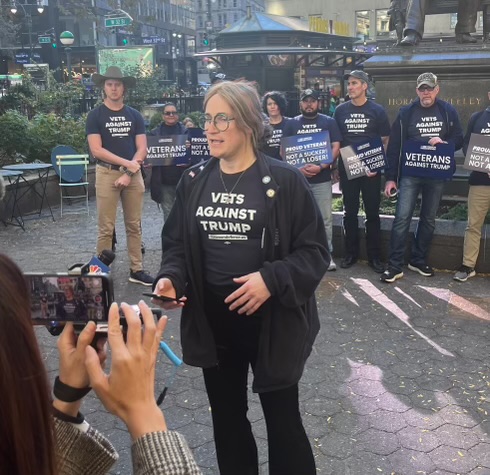
- As a transgender veteran, I served my country not once but twice. I took the oath to defend my country, and I did my duty honorably. I was transgender then, and I’m transgender now. The only difference is I no longer have to hide it.
- President Trump and his cronies have now decided that being transgender is dishonorable and dishonest, and thus does not fit within the ethos of military service. This spits directly in the face of the many, many transgender servicemembers, including me, who have served this nation bravely, effectively, and honorably.
- Transgender people have always served in every echelon of our nation’s military, from intelligence, where I spent most of my time, to frontline, tip-of-the-spear combat roles, including in special forces. We have always, always done our duty.
- No one has the right to try to take that from us, and it is unacceptable for the Commander-in-Chief to diminish the honorable legacy of transgender soldiers, sailors, airmen, marines, and coast guardsmen.
Pentagon
U.S. Army anesthesiologist charged in sexual assault of 42 males
The sheer number of alleged victims could make this one of the U.S. Army’s largest sexual assault prosecutions
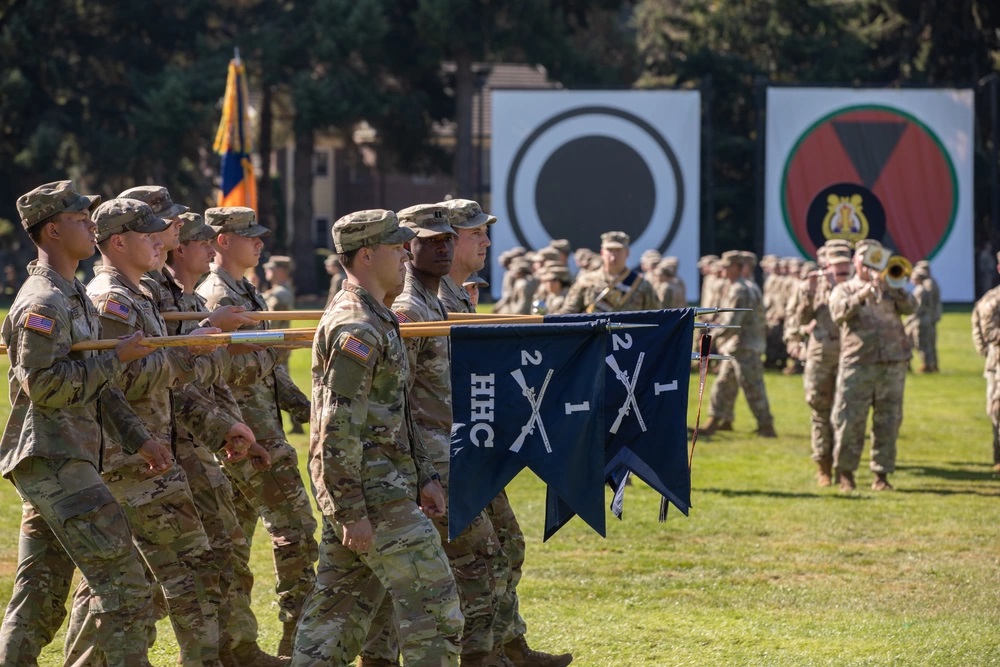
OLYMPIA, Wash. – Prosecutors with the U.S. Army’s Judge Advocate General’s Corps formally charged Maj. Michael Stockin, a pain management anesthesiologist at Madigan Army Medical Center at Joint Base Lewis-McChord on this sprawling base located between Olympia and Tacoma in eastern Washington State with sexually assaulting 42 male service members.
The Army’s Office of Special Trial Counsel spokeswoman Michelle McCaskill told Army Times in a statement Friday that in January prosecutors referred 53 charges and specifications against Stockin to a general court-martial. Those charges included “multiple instances of abusive sexual contact and indecent viewing.”
Stockin’s trial is currently scheduled for Oct. 7.
McCaskill’s statement added that the investigation into Stockin remains open and will remain open through the trial. “Army (Criminal Investigation Division) has interviewed patients from Maj. Stockin’s duty stations and will further investigate should additional victims come forward.”
In addition to the charges Stockin is facing stemming from incidents at the Madigan Army Medical Center Lewis-McChord, Army investigators are now widening their inquiry to bases in Hawaii, Maryland and Iraq. The sheer number of alleged victims could make this one of the Army’s largest sexual assault prosecutions.
CBS News reported Friday that the chairman of the powerful Senate Armed Services Committee, Senator Jack Reed (D-RI), has sent a letter asking the Pentagon’s inspector general to investigate whether the military “failed” to support the alleged victims of Maj. Stockin.
CBS also noted that Ryan Guilds, an attorney who is representing seven of the 42 alleged victims, says that from the outset of the Army’s CID investigation, his clients have been kept in the dark and have not been properly supported or provided with victims’ resources, including access to legal services.
“These services have failed because leadership has failed,” Guilds wrote in a letter to the House and Senate Armed Services subcommittees on personnel.
Robert F. Capovilla, Stockin’s attorney, told Army Times in a statement that his client will plead not guilty to all charges and specifications in today’s hearing.
“At this point, the defense can say with supreme confidence that we intend to fight against every single allegation until the jury renders their verdict,” Capovilla wrote. “Until then, we sincerely hope that the United States Army is fully prepared to respect Major Stockin’s Constitutional rights at every phase of this process, both inside and outside of the courtroom.”
Capovilla added that “in today’s political culture” the media will condemn Stockin and render judgement before the judge or jury hear evidence.
“We urge everyone to keep an open mind, to remember [Maj.] Stockin is presumed innocent and understand that this fight is just getting started,” Capovilla wrote.
Related:
Pentagon
The Pentagon: Review of discharges of LGBTQ veterans underway
“The stigma that came from that discriminatory law is something that continues to live with our gay veterans to this day”
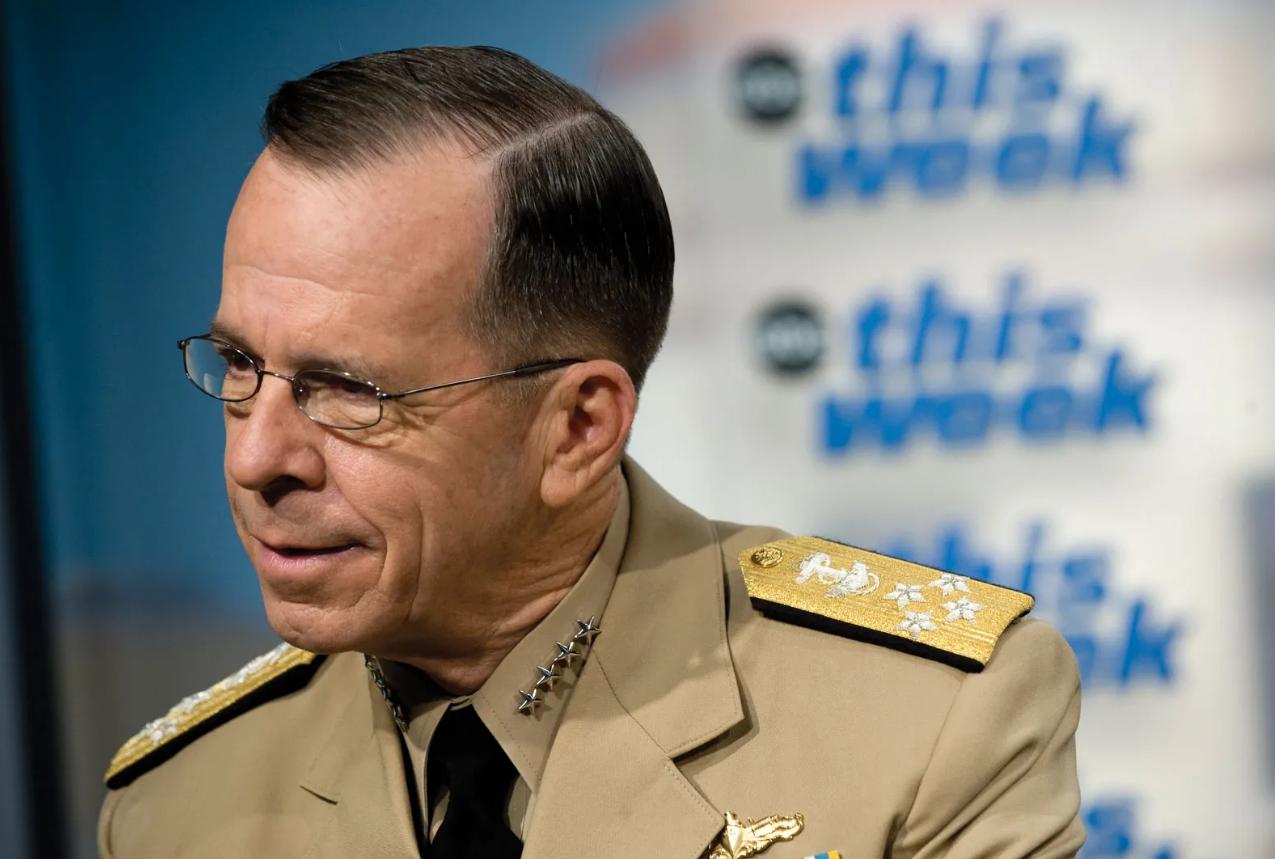
WASHINGTON – The Pentagon confirmed on Sunday that the process of reviewing discharge papers of LGBTQ veterans who were kicked out of the military because of their sexual orientation is now underway, pursuant to a directive from the Biden-Harris administration earlier this year.
The Defense Department told ABC News that “staff have begun identifying veterans eligible for review, but a spokesperson could not say how many personnel are involved with the outreach or when the process is expected to be completed.”
Some advocates contend that the federal government has moved too slowly to remedy the issues for thousands of veterans who were discharged other than honorably, or who do not enjoy full access to their benefits because of discriminatory policies like “Don’t Ask, Don’t Tell.”
Massachusetts Gov. Maura Healey (D) — who, last year, alongside Oregon Gov. Tina Kotek, became the first lesbian woman elected governor — told ABC News, “I appreciate what the Biden administration is doing, but we want to make sure though that we are moving quickly.”
“The stigma that came from that discriminatory law — Don’t Ask, Don’t Tell — is something that continues to live with our gay veterans to this day,” she said.
Healy explained that in Massachusetts, “We’re going to set up a board. We’re going to make sure that any veteran who served, who is discharged because they were gay, is going to be in line and receive state benefits.”
Pentagon
USN’s Club Q hero given valor award for actions during shooting
The Navy & Marine Corps Medal is the highest noncombat award for heroism & typically is awarded to those who put their own life in jeopardy
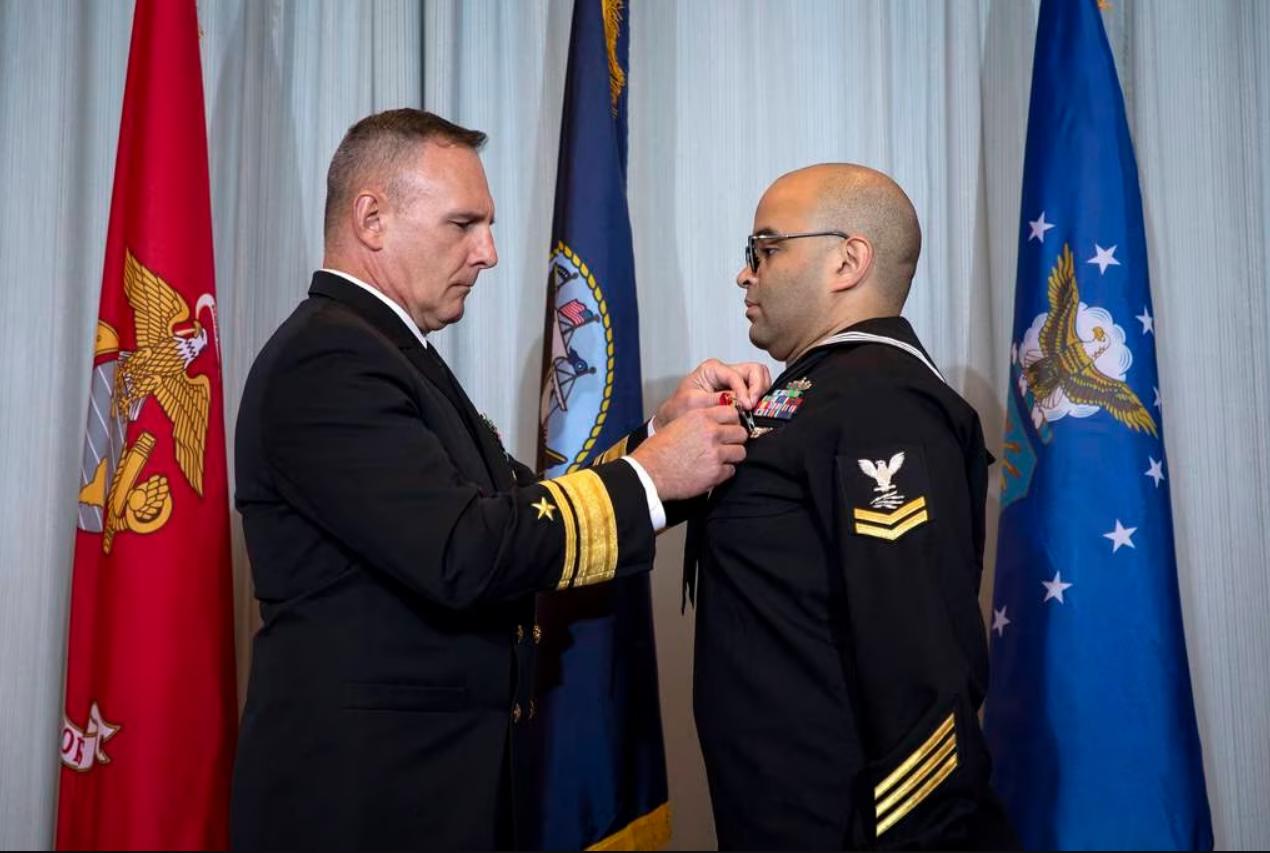
COLORADO SPRINGS, Colo. – U.S. Navy Information Systems Technician Petty Officer Second Class Thomas James was awarded The Navy and Marine Corps Medal this week for his actions taken as one of the three persons who tackled and then disarmed the shooter in the LGBTQ+ Club Q nightclub mass shooting in Colorado Springs last November.
According to Colorado Springs Police Chief Adrian Vasquez at a press conference last year, James, Army veteran Rich Fierro and a trans woman, all joined in the courageous takedown, disarming the 22-year-old suspect and holding him until the arrival by responding Colorado Springs police officers.
James had grabbed the barrel of the weapon and restrained the gunman until the police arrived and took the assailant into custody, a Navy press release said.
He suffered a gunshot wound in his abdomen and burned his hands as a result of his actions. Still, he offered his seat in an ambulance to another injured person.
“I simply wanted to save the family I found,” James, originally from West Virginia, said in a statement in November 2022. “If I had my way, I would shield everyone I could from the nonsensical acts of hate in the world, but I am only one person.”
The shooter walked into Club Q late on Nov. 19 with multiple firearms and is accused of killing five people. At least 18 others were injured.
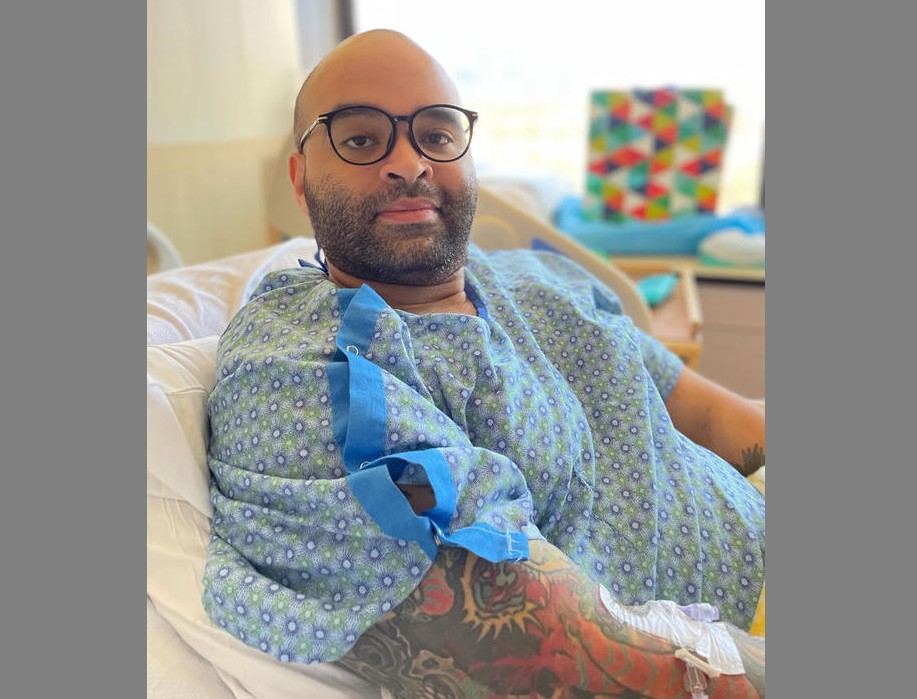
(Photo Credit: U.S. Navy Public Affairs)
The Navy Times reported that Rear Adm. Scott Robertson, director of Plans, Policy and Strategy for North American Aerospace Defense Command and U.S. Northern Command, presented the award to James on Thursday at Peterson Space Forces Base in Colorado Springs.
Robertson said ahead of the ceremony he asked James, who is assigned to the Defense Intelligence Agency, why he chose to act the way he did.
“He said, ‘I wanted to buy time for my friends. I wanted to protect my community,’” Robertson said at the ceremony, according to the Navy press release.
Robertson also said James’ actions caused him to reflect on how he himself would have responded if put in the same situation.
“I myself can only hope that I would channel the courage in our Navy core values like he did,” Admiral Robertson said at the ceremony. “But, we don’t have to wait for crisis to apply core values. We can and should apply them every day. That’s what I am taking away from the lessons you taught us all.”
The Navy and Marine Corps Medal is the highest noncombat award for heroism and typically is awarded to those who put their own life in jeopardy.
Related:
Pentagon
Pentagon to restore honor to vets kicked out over sexual orientation
This follows a lawsuit filed last month by LGBTQ veterans against the Pentagon for allegedly failing to remedy “ongoing discrimination”
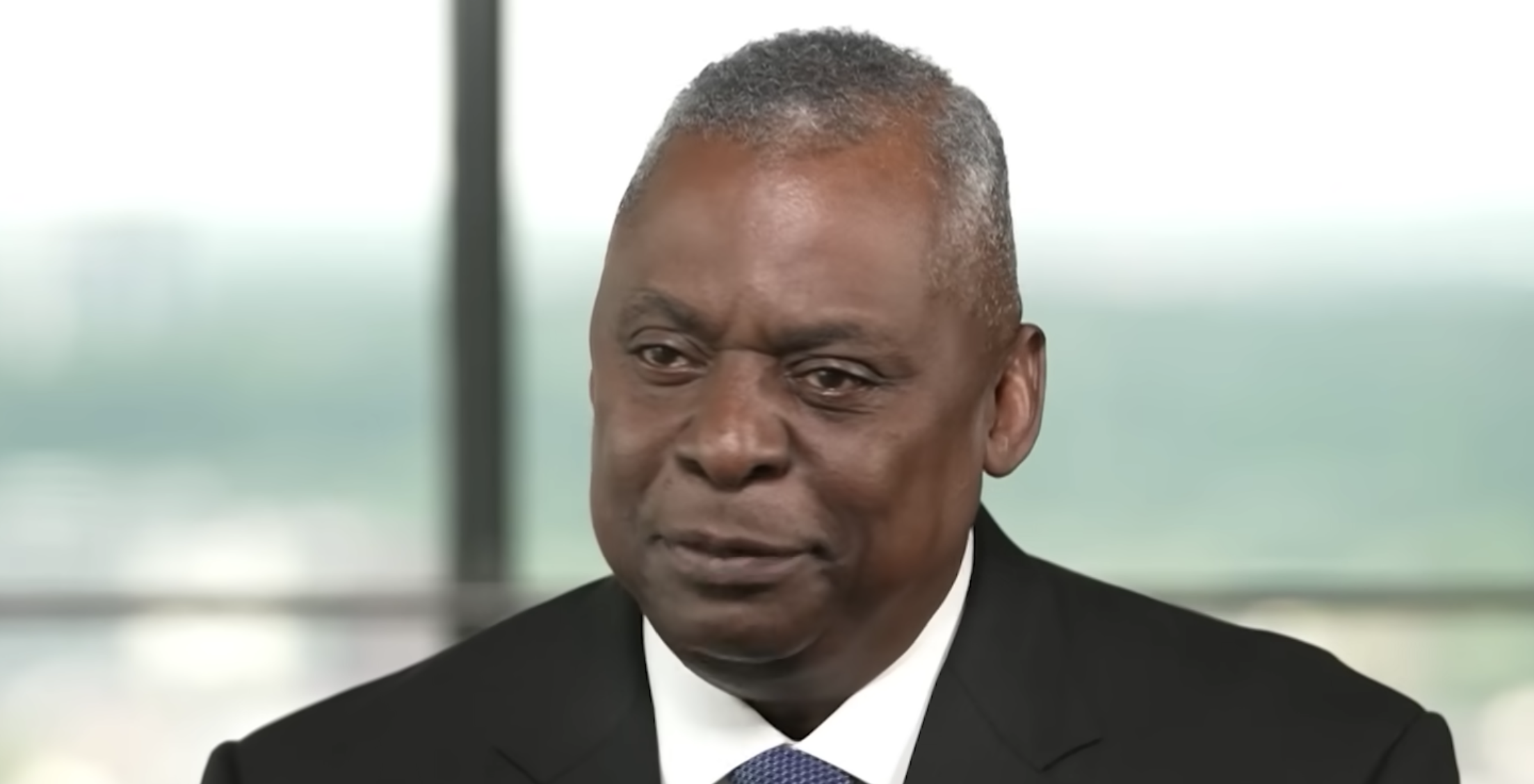
ARLINGTON, Va. – The U.S. Department of Defense announced plans to restore honor to service members who were kicked out of the military over their sexual orientation, the agency announced on Wednesday, the 12th anniversary of the repeal of “Don’t Ask, Don’t Tell.”
“Over the past decade, we’ve tried to make it easier for service members discharged based on their sexual orientation to obtain corrective relief,” U.S. Secretary of Defense Lloyd Austin said in a statement.
“While this process can be difficult to navigate, we are working to make it more accessible and efficient,” he said, adding, “in the coming weeks, we will be initiating new outreach campaigns to encourage all service members and veterans who believe they have suffered an error or injustice to seek correction to their military records.”
The move follows a class action lawsuit filed last month by LGBTQ veterans against the Pentagon for allegedly failing to remedy “ongoing discrimination,” including biased language in the discharge papers of LGBTQ veterans.
CBS News has investigated the Pentagon’s handling of service records of veterans who were kicked out of the military because of their sexual orientation, revealing the broad scope of discrimination experienced by these LGBTQ veterans — finding, for instance, that more than 29,000 were denied honorable discharges.
Also on Wednesday, U.S. Reps. Mark Takano (D-Calif.) and Sara Jacobs (D-Calif.), along with U.S. Sen. Richard Blumenthal (D-Conn.) re-introduced a bill that would establish “a commission to investigate the historic and ongoing impacts of discriminatory military policies on LGBTQ service members and veterans.”
“This commission would study the impact of these bigoted rules” barring LGBTQ troops from serving “and forge a more welcoming future in the military and at the VA,” said Takano, who serves as ranking member of the House Committee on Veterans’ Affairs and co-chair of the Congressional Equality Caucus.
“Our country has never made amends for official discriminatory policies like ‘Don’t Ask, Don’t Tell’ and the transgender military ban – and that failure still haunts today’s service members and veterans,” said Jacobs.
“That’s why I’m so proud to co-lead this bicameral legislation that will right these historic wrongs, investigate the past and present impact of anti-LGBTQ+ policies, and help us move forward to build and sustain a diverse, inclusive, strong, and welcoming military.”
“This commission would be an important step to understand the full scope of the harms caused by policies like Don’t Ask, Don’t Tell, and to ensure a more equitable future for all who serve our country in uniform,” Blumenthal said.
Pentagon
HIV-positive soldier commissioned with U.S. Army National Guard
More than 50 people who attended were family members, friends, LGBTQ rights advocates, and fellow service members
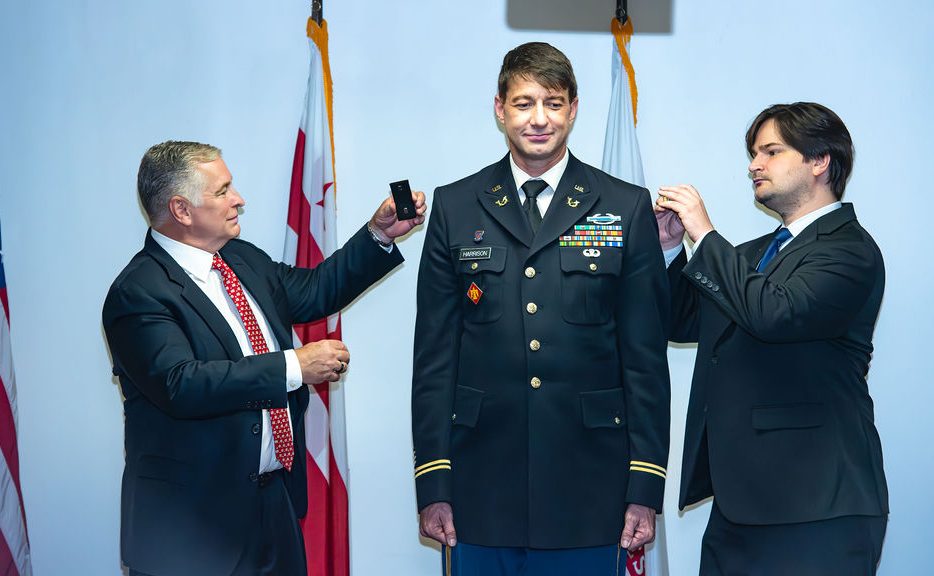
WASHINGTON – Gay D.C. attorney Nicholas Harrison, a longtime member of the U.S. Army National Guard, was officially commissioned as a First Lieutenant in the D.C. Army National Guard at an Aug. 5 ceremony.
The ceremony at the D.C. National Guard Armory located next to RFK Stadium took place a little over a year after Harrison, who was diagnosed with HIV in 2012, successfully challenged the military’s longstanding policy of banning soldiers with HIV from becoming commissioned officers in a lawsuit initially filed in 2018.
In what LGBTQ and AIDS activists consider a landmark ruling, the U.S. District Court for the Eastern District of Virginia handed down a decision in April 2022 declaring the military’s HIV restrictions unconstitutional. The decision ordered the U.S. Department of Defense to discontinue its policy of refusing to deploy and commission as officers members of the military with HIV if they are asymptomatic and otherwise physically capable of serving.
Two months after that ruling, the Biden administration announced it would not contest the court ruling in an appeal, and a short time later U.S. Secretary of Defense Lloyd Austin issued a memorandum announcing changes in the military policy that would allow members of the military with HIV to be deployed and become officers in accordance with the court ruling.
The memorandum states that individuals “who have been identified as HIV positive, are asymptomatic, and who have clinically confirmed undetectable viral load will have no restrictions applied to their deployability or to their ability to commission while a service member solely on the basis of their HIV-positive status.”
Kevin Jennings, CEO of Lambda Legal, the LGBTQ litigation organization that represented Harrison in his lawsuit and who attended Harrison’s commissioning ceremony, called the court ruling and the Biden administration’s decision not to appeal the ruling an important advancement in efforts to remove barriers to people with HIV who wish to serve in the military.
“Today is a historic day in Washington, D.C., as we witness the commissioning of Nick Harrison,” Jennings and Lambda Legal Senior Attorney Kara Ingelhart said in a statement. “Although the journey to wearing his officer’s bars took several years, Nick’s perseverance, along with his legal team and other involved service members, helped to realize his dream of becoming an officer in the District of Columbia Army National Guard,” Jennings and Ingelhart said.
Among the more than 50 people who attended Harrison’s commissioning ceremony were family members, friends, LGBTQ rights advocates, and fellow service members.
Serving as master of ceremonies at the event was Dr. Joshua Fontanez, chair of the board for the Modern Military Association of America, the nation’s largest organization representing LGBTQ military service members, their spouses, family members, and veterans. The association joined Lambda Legal in supporting Harrison’s lawsuit to overturn the military’s HIV policy.
Donald Cravins Jr., the U.S. Under Secretary of Commerce for Minority Business Development, administered the oath of office commissioning Harrison to the rank of First Lieutenant.
And Jennings of Lambda Legal and Baraq Stein, Harrison’s partner, performed the ceremonial “Pinning of Rank” by attaching the lieutenant’s rank insignia on each side of the shoulder of the Army uniform that Harrison was wearing at the ceremony.
“This commissioning ceremony, steeped in long-standing military tradition, is intentionally focused on honoring the network of support and inspiration that brought me to this juncture,” Harrison said in remarks following his official commissioning.
“My own path has been far from conventional, leading me into the heart of a storm that allowed me to become part of a larger narrative – challenging the military’s discriminatory HIV policies through a landmark court case brought by Lambda Legal and the Modern Military Association of America,” he said.
A native of Oklahoma, Harrison joined the U.S. Army in September 2000 at the age of 23, at the time he was about to enter his third year as a student at the University of Central Oklahoma. He said he served for three years as an airborne paratrooper with a Parachute Infantry Regiment in Anchorage, Alaska.
After completing his initial enlistment in the Army, he resumed his university studies while joining the Oklahoma National Guard. He graduated in May 2005 with a bachelor’s degree and “proceeded to Oklahoma City University’s law school,” he told the Blade in a statement.
In March 2006, while enrolled in law school, he was deployed to Afghanistan with the Oklahoma National Guard’s 45th Infantry Division, he recounted in his statement. Upon his return, he said he had to restart his law school studies at the University of Oklahoma in August 2007.
After receiving a law degree and Master of Business Administration degree he was deployed once again, this time to Kuwait and Iraq. “On my return, I passed the bar and began job hunting, which led me to Washington, D.C. in July 2013,” he says in his statement.
In October of 2013, he transferred his National Guard membership from Oklahoma to D.C. by joining the D.C. National Guard, where he was assigned to a military police company with the rank of sergeant, he said. During that same year, he was selected for a Judge Advocate General position, which involves duties similar to a civilian judge.
Having been diagnosed with HIV the previous year, he requested a waiver from the military’s HIV policy that would have allowed him to take on his new JAG position. But his request was turned down, prompting him to initiate a campaign to challenge what he and many others believed to be an outdated policy denying fully capable people with HIV from serving in positions as military officers.
A short time later, through support from Lambda Legal and an organization that later became the Modern Military Association of America, he filed his lawsuit challenging the military’s HIV policy that has led to what his supporters are calling the landmark event on Aug. 5 during which he became a commissioned officer.
Harrison, however, said the Army has interpreted the changed HIV rules in a way that has forced him to take his case once again to court to challenge a decision by Army officials to have him reapply to join the National Guard under the new policy rather than commission him as an officer retroactively based on his 23 years of military service.
Having to reapply, Harrison told the Washington Blade, would require him to serve in the National Guard for another eight years, even though he became eligible to retire in 2020. He has contested the decision to require him to reapply before the same court that overturned the military’s discriminatory HIV policy and before the Army Board for the Correction of Military Records, which he says has the authority to “rectify” the Army’s position on reenlistment.
Jennings of Lambda Legal said at Harrison’s commissioning ceremony that Harrison’s ongoing dispute with military officials indicates that some details related to Harrison’s case must still be worked out.
“But today we really should just celebrate Nick’s perseverance,” Jennings told the Blade. “His determination, and the fact that he has made history has paved the way for thousands of people.”
In his remarks following his commissioning, Harrison said among the lessons he has learned in his many years in the military is the need to be respectful of the military as an institution and to engage in “respectful disagreement” when at odds with others.
“When I chose to don the uniform, to become part of an institution that has had its share of failures, it was not a decision made lightly,” he said. “I embarked on this journey because I believe in the potential for change from within, in the power of standing up from within a marginalized community to serve, protect, and defend a nation that doesn’t always reciprocate in kind,” he told the gathering.
Harrison currently serves as managing partner for the downtown D.C. law firm Harrison-Stein.
Pentagon
Senior General speaking at DoD Pride slams anti-LGBTQ laws
State legislatures across the nation have this year introduced nearly 525 bills attacking the LGBTQ+ community
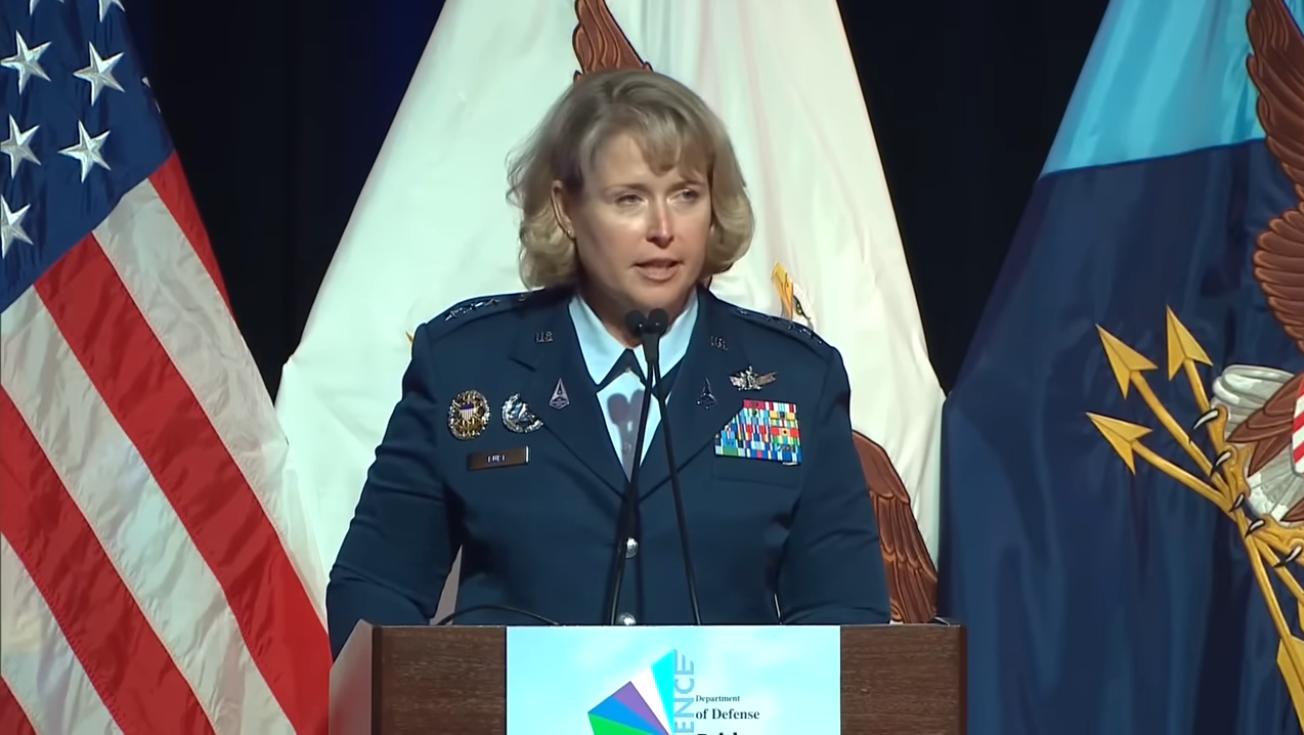
ARLINGTON, VA – During her speech at the 12th Annual Department of Defense LGBTQ+ Pride Event held at the Pentagon earlier this month, Lt. Gen. DeAnna Burt, Deputy Chief of Space Operations for the U.S. Space Force, leveled criticism at state-level legislation the general feels will negatively impact LGBTQ+ military personnel and their dependents.
“Since January of this year, more than 400 anti-LGBTQ+ laws have been introduced at the state level,’ said Burt. ‘That number is rising and demonstrates a trend that could be dangerous for service members, their families, and the readiness of the force as a whole,’ she added.
Without specifically calling individual states, Burt took the lawmakers to task for leaving her with options in personnel choices that because of the hostile environments targeting the LGBTQ+ community translated to her having to settle on filling jobs with less qualified persons so as to avoid a potential harmful environment for LGBTQ servicemembers or their families.
“When I look at potential candidates, say, for squadron command, I strive to match the right person to the right job. I consider their job performance and relevant experience first. However, I also look at their personal circumstances, and their family is also an important factor,” the general said.
“If a good match for a job does not feel safe being themselves and performing at their highest potential at a given location, or if their family could be denied critical health care due to the laws in that state, I am compelled to consider a different candidate, and, perhaps less qualified. Those barriers are a threat to our readiness, and they have a direct correlation to the resiliency and wellbeing of our most important operational advantage: our people.” Burt stressed.
State legislatures across the nation have this year introduced nearly 525 bills attacking the LGBTQ+ community. A Defense Department spokesperson while declining to comment directly on General Burt’s comments, said:
“We have the top talent in the Nation, and we must enable them to perform their missions by ensuring they are not worried about the health and safety of their families. The Department recognizes that various laws and legislation are being proposed and passed in states across America that may affect LGBTQ Soldiers, Sailors, Marines, Airmen, Guardians, and/or their LGBTQ dependents in different ways.”
“Efforts are made by leadership on a continuing basis to identify and remove any barriers that impacts force readiness and moral,” the official added.
During a Pride Event at the White House, President Joe Biden called the new state measures ‘terrifying’ attacks on LGBTQ rights.
“When families across the country face excruciating decisions to relocate to a different state to protect their child from dangerous ant-LGTBQ laws, we have to act,” the president said.
‘We need to push back against the hundreds of callous and cynical bills introduced in states targeting transgender children, terrifying families and criminalizing doctors and nurses,’ Biden said adding, “These bills and laws attack the most basic values and freedoms we have as Americans.”
Watch:
2023 DoD Pride Event (The General’s remarks start at 38:33):
Pentagon
Chairman of the Joint Chiefs defends cancellation of drag show
Milley pushed back on accusations that the military had “gone woke” during the interview, marking the 79th anniversary of the D-Day invasion
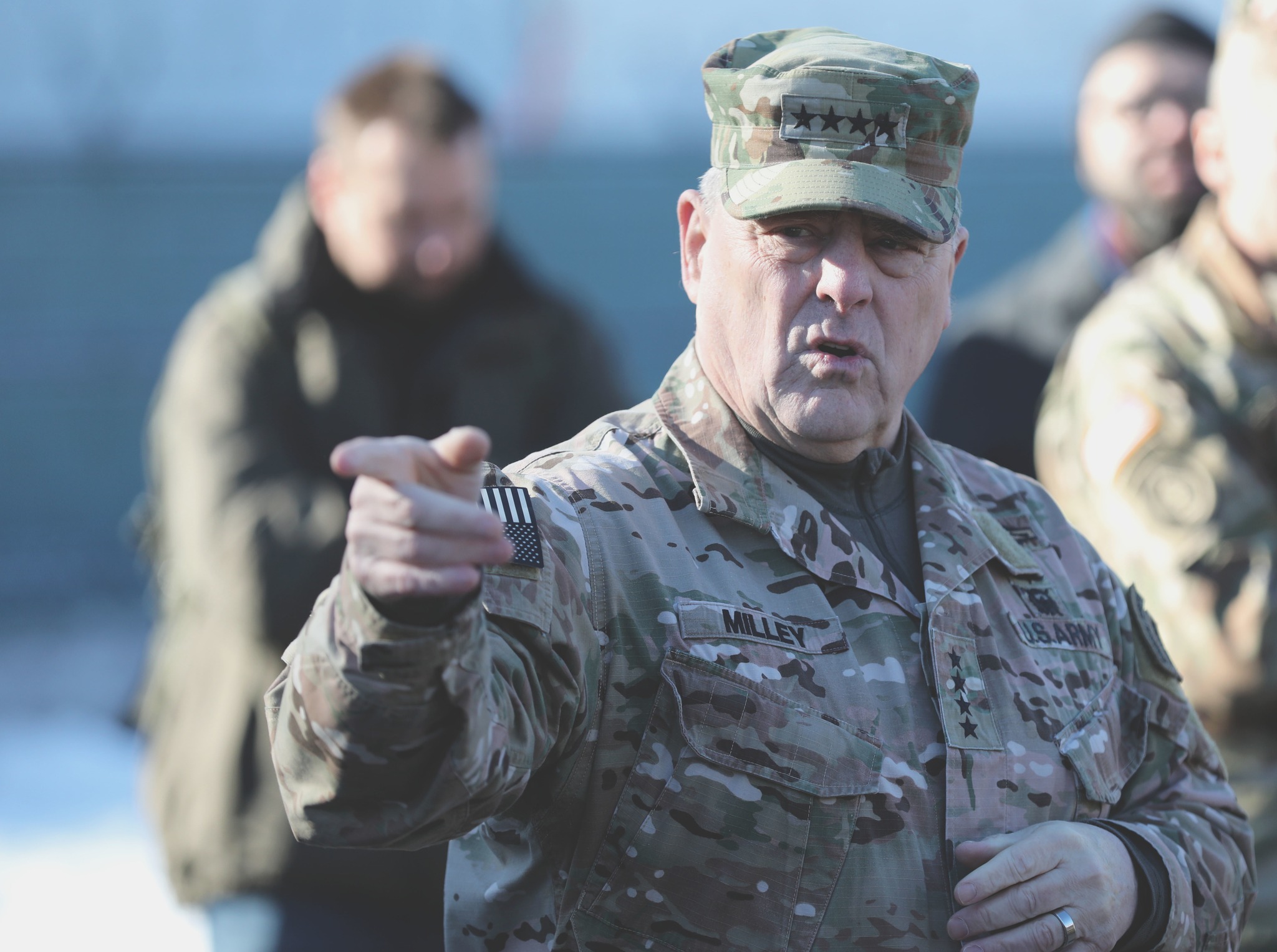
NORMANDY, France – U.S. Army General Mark Milley, chairman of the U.S. Joint Chiefs of Staff, told CNN’s Oren Liebermann during an interview Monday that last week’s cancellation of a drag show at Nellis Air Force base in Nevada was “the absolute right thing to do.”
The top U.S. military officer said the decision came from U.S. Secretary of Defense Lloyd Austin, but added that he agreed with the move.
A Pentagon source familiar with the matter told the Washington Blade on Thursday that Milley informed Air Force Chief of Staff Gen. Charles Q. Brown, Jr. that it is not Pentagon policy to fund drag shows on bases and the show needed to be canceled or moved off base.
He echoed those comments during Monday’s interview, asserting that the performances “were never part of [Department of Defense] policy to begin with, and they’re certainly not funded by federal funds.”
“DoD resources should be used for mission-essential operations, not diverted toward initiatives that create cultural fissures within our service ranks,” anti-LGBTQ U.S. Rep. Matt Gaetz (R-Fla.) said in a May 23 letter to Milley and Austin.
“I find it completely unacceptable that DoD is using taxpayer dollars to fund DEI programs that are divisive in nature,” said Gaetz, referring to diversity, equity, and inclusion – programs typically administered by corporations that have increasingly become targets of conservative outrage.
Milley pushed back on accusations that the military had “gone woke” during the interview, which took place in Normandy, France, marking the 79th anniversary of the D-Day invasion into Nazi-occupied Europe on June 6 1944.
Related:
Pentagon
Defense Secretary orders drag show at USAF base cancelled
A Pentagon official said that Chairman of the Joint Chiefs was visibly angry about the decision to host the event on base
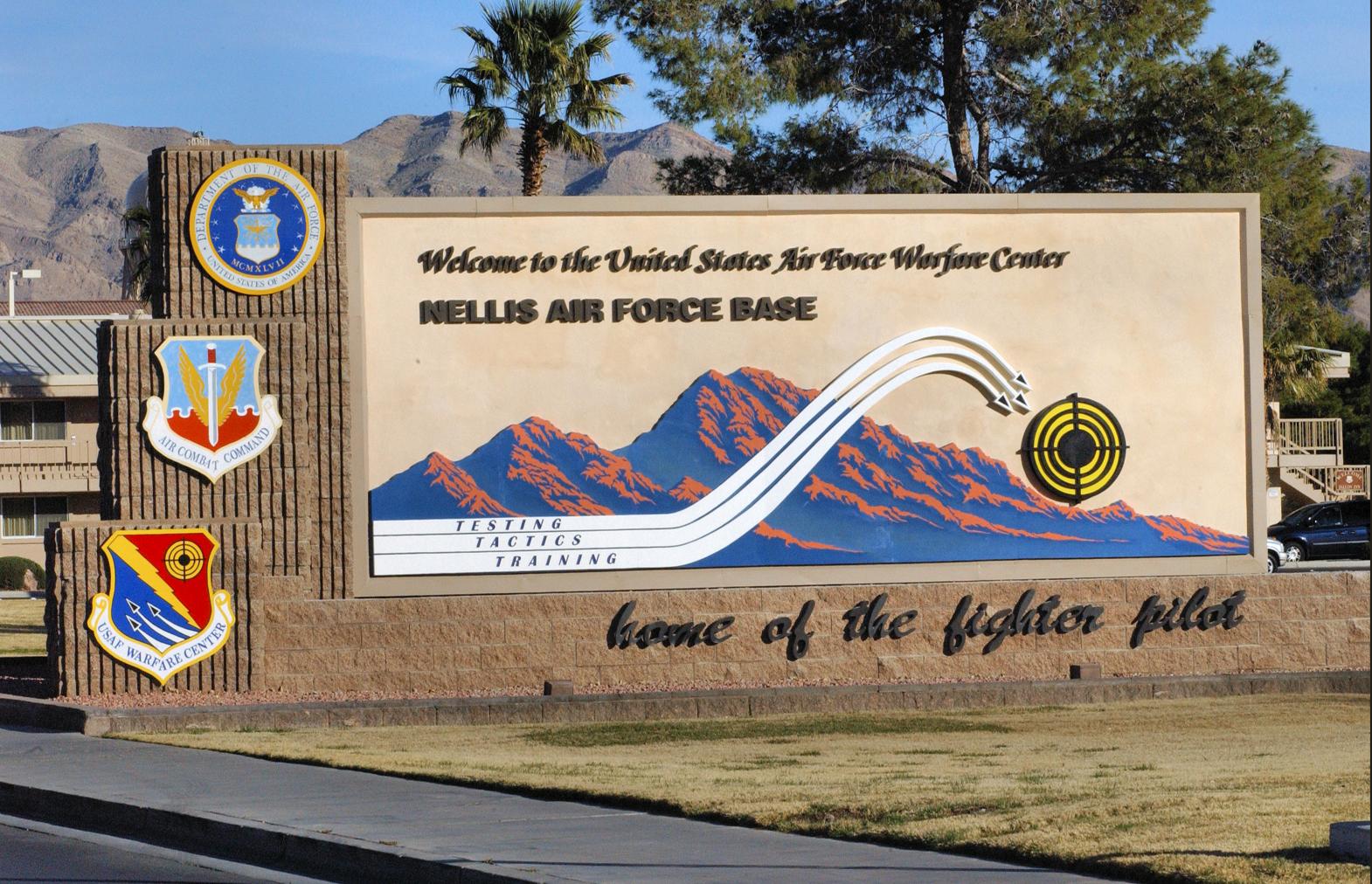
NELLIS AFB, NV – A previously scheduled drag show to kick off Pride Month on this sprawling base, an advanced combat aviation training facility for the U.S. Air Force northeast of Las Vegas, was cancelled Wednesday according to a Pentagon official, after U.S. Defense Secretary Lloyd Austin and Chairman of the Joint Chiefs of Staff, General Mark Milley stepped in.
A Pentagon source familiar with the matter told the Blade that Chairman of the Joint Chiefs informed the Chief of Staff of the Air Force Gen. Charles Q. Brown Jr. that it is not Pentagon policy to fund drag shows on bases and the show needed to be canceled or moved off base.
The issue over drag performances was a focus at a House Armed Services Committee hearing earlier this year on March 29, when anti-LGBTQ+ Florida Republican Congressman Matt Gaetz demanded in an angry tone that the Defense Secretary and the JCS Chairman explain why drag queen story hours were being hosted on U.S. military installations. The Florida Republican mentioned bases in Montana, Nevada, Virginia and Germany.
In a highly publicized incident in May 2022, Stars and Stripes reported that the Commanding General of the 86th Airlift Wing at Ramstein AFB in Germany had a Drag Queen Storytime, that was to be held in honor of Pride Month cancelled.
According to Stars & Stripes, the 86th Air Wing’s public affairs sent a statement to a radical-right anti-LGBTQ+ news outlet in Canada, The Post Millennial, which had requested comment to its article about the event and also accused the Air Force of pushing a more “woke” agenda among servicemen.
In a press release, Florida Republican U.S. Senator Marco Rubio took partial credit for the cancellation.
Rubio sent a letter to U.S. Air Force Secretary Frank Kendall regarding the Air Force Library at Ramstein Air Force Base, Germany hosting a “Drag Queen Story Time” event for young children of servicemembers.
Rubio urged him to cancel the event, discipline the staff involved in planning and hosting the event, and respond to questions on whether other installations both at home and around the world have done similar events. Following receipt of Rubio’s letter, the Air Force canceled the event.
“The last thing parents serving their nation overseas should be worried about, particularly in a theater with heightened geopolitical tensions, is whether their children are being exposed to sexually charged content simply because they visited their local library,” Rubio wrote.
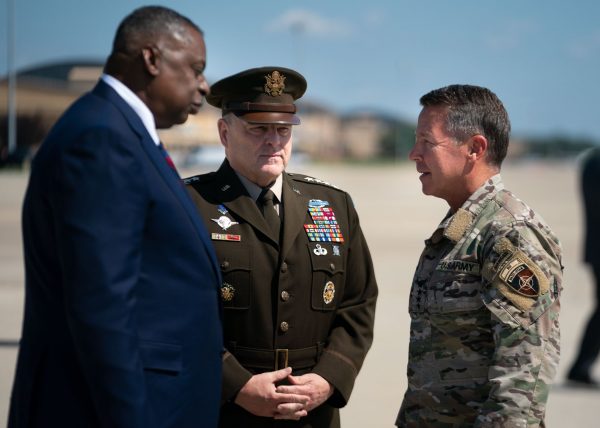
(Photo by Carlos M. Vazquez, DOD)
A Pentagon official referring to the drag show at Nellis said that Chairman of the Joint Chiefs was visibly angry about the decision to host the event on base after being informed about it earlier this week.
The drag show was scheduled for Thursday June 1, but Maj. Gen. Case A. Cunningham, the Commander of the U.S. Air Force Warfare Center, Nellis was informed in the past few days that it must either be canceled or moved off base.
On May 23, Congressman Gaetz sent a letter to Secretary Austin and Chairman Milley, alleging that the “pervasive and persistent use of taxpayer dollars for drag events,” had a June 1, 2023 Nellis Air Force Base, Nevada event scheduled.
Gaetz went on to write that “Nellis Air Force Base has announced a so-called “family-friendly” drag organized by the Nellis LGBTQ+ Pride Council for June 1, 2023. In this latest outright attack on children, this event is being advertised as having no minimum age requirement.”
In his letter Gaetz also demanded to know:
- Does the DoD feel it’s appropriate for children to attend a sexualized drag performance?
- Why are base commanders defying your intent and direction by facilitating drag events?
- If this event goes forward, whether on June 1st or a later scheduled date, please provide an explanation regarding your justification for why you allowed the event to take place.
According to a spokesperson for the U.S. Air Force Warfare Center, Nellis, in June 2021 the base had hosted a Pride Month drag show titled “Drag-u-Nellis.” The spokesperson noted the 2021 show was intended to promote inclusivity and diversity.
Pentagon
The Navy’s top admiral defends non-binary officer over viral video
“Sir, we ask people from all over the country, from all walks of life, from all different backgrounds to join us”
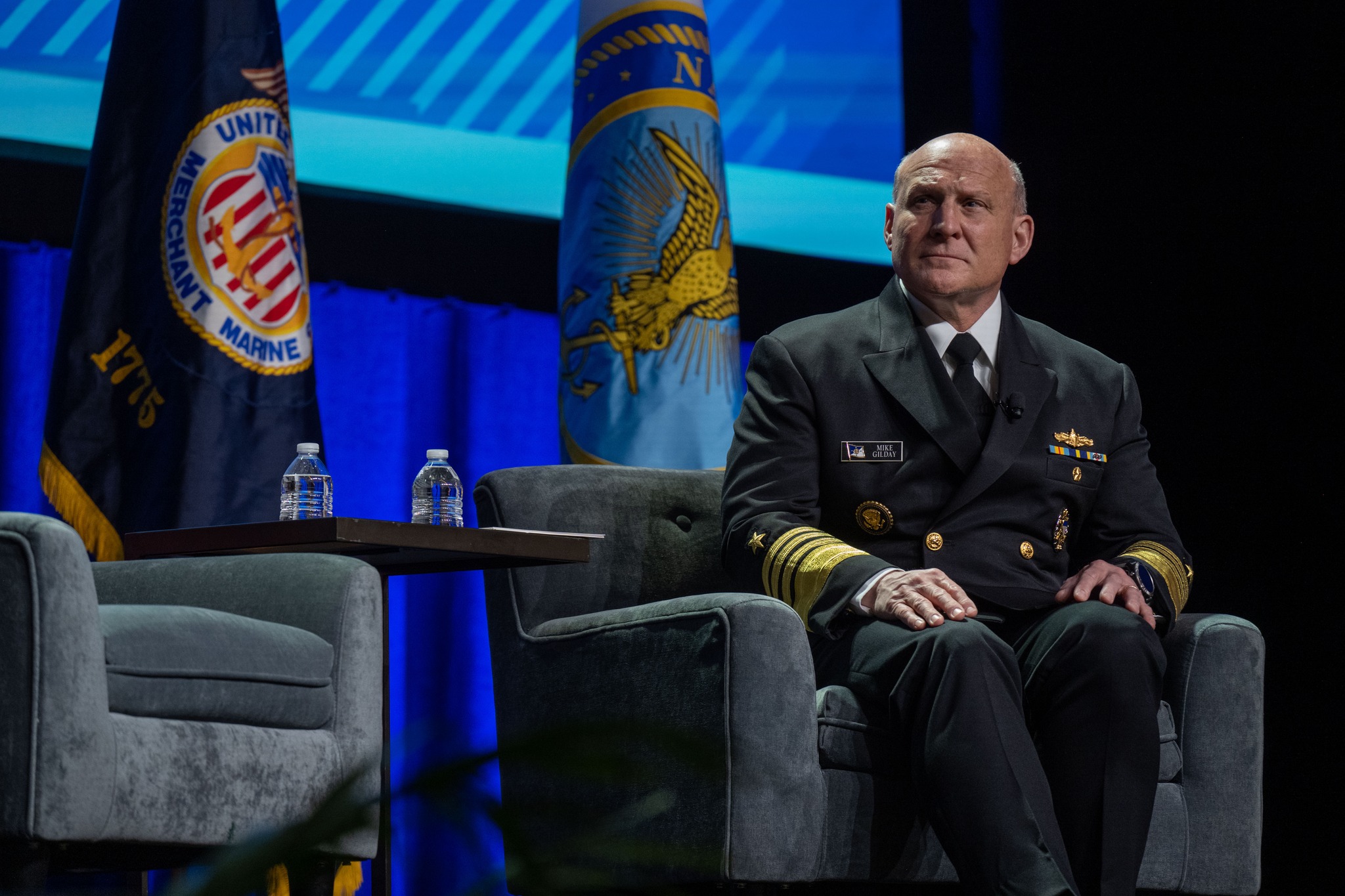
WASHINGTON – During the course of his testimony before the U.S. Senate Armed Services Committee on April 18, Chief of Naval Operations (CNO) Admiral Mike Gilday found himself being questioned by Alabama Republican U.S. Senator Tommy Tuberville about an Instagram video that had gone viral regarding a nonbinary commissioned officer.
Senator Tuberville has a record of anti-LGBTQ animus including federal legislation, co-sponsoring a bill in June 2022 that was originally sponsored by another anti-LGBTQ Republican, Sen. Mike Lee of Utah, that would have banned transgender youth nationwide from taking part in school sporting events consistent with their gender identities.
During the hearing, Tuberville told the CNO, “I have a lot of problems with this video.” He then misgendered the nonbinary officer and after asking the Admiral if he had seen the video which Gilday answered in the affirmative, Tuberville told him “I hope we train our officers to prioritize their sailors, not themselves.”
The video regarding poetry that had been read by LTJG Audrey Knutson, to their fellow officers and the crew of the U.S.S. Gerald R. Ford (CVN 78) aircraft carrier regarding the ship’s recent deployment, which had been posted to the U.S. Navy’s Judge Advocate General Corps’ (JAG), Instagram account:
Lieutenant Knutson explained that they were honored to follow in their grandfather’s footstep, who had served as a closeted gay sailor aboard the U.S.S. Hornet (CV-8) during World War Two. The reading of the poem occurred during an LGBTQ+ spoken word night, which they said was one of the best moments of their first ever deployment at sea aboard the Ford.
Days prior to the hearing, Sen. Marco Rubio (R-FL) had criticized the video on Twitter:
While China prepares for war this is what they have our @USNavy focused on pic.twitter.com/hg6P4igR5w
— Marco Rubio (@marcorubio) April 12, 2023
Tuberville then asked the CNO:
“Did it surprise you that a junior officer said the highlight of her deployment – her first, and the ship’s first – was about herself and her own achievement?”
Admiral Gilday, the U.S. Navy’s highest ranking officer, in a measured response to the Senator, told the committee:
“I’ll tell you why I’m particularly proud of this sailor,” he responded. “Her grandfather served during World War II, and he was gay, and he was ostracized in the very institution that she not only joined and is proud to be a part of, but she volunteered to deploy on Ford. And she’ll likely deploy again next month when Ford goes back to sea.”
“Sir, we ask people from all over the country, from all walks of life, from all different backgrounds to join us, and then it’s the job of a commanding officer to build a cohesive warfighting team,” he continued. “That little trust that a commanding officer develops across that unit has to be grounded on dignity and respect.”
On Twitter after that exchange, journalist Ed Krassenstein noted:
“This is incredible! Chief of Naval Operations Adm. Mike Gilday just destroyed Republican talking points that attacked a non-binary Navy Officer who was proud that they had the chance to read a poem to their crew mates on an LGBTQ spoken-word night.
Gilday responded to Senator Tommy Tuberville saying, “I’ll tell you why I’m particularly proud of this sailor. Her grandfather served during World War II, and he was gay, and he was ostracized in the very institution that she not only joined and is proud to be a part of, but she volunteered to deploy on Ford. And she’ll likely deploy again next month when Ford goes back to sea.”
Thank you to this incredible sailor and to Adm. Gilday for standing up for our Navy heroes!”
This is incredible!
— Ed Krassenstein (@EdKrassen) April 18, 2023
Chief of Naval Operations Adm. Mike Gilday just destroyed Republican talking points that attacked a non-binary Navy Officer who was proud that they had the chance to read a poem to their crew mates on an LGBTQ spoken-word night.
Gilday responded to Senator… pic.twitter.com/n1DePNHc24
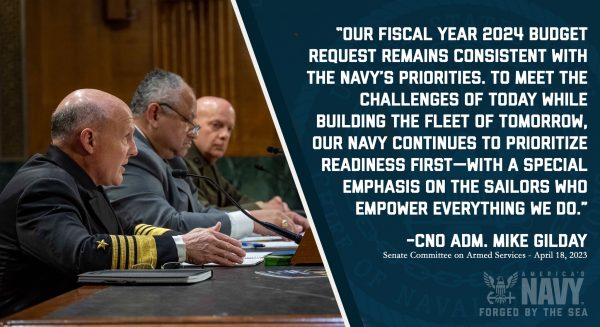
(Official U.S. Navy photo & graphic)
-

 Television3 days ago
Television3 days agoSay ‘Hello, Hello, Hello’ to ‘Drag Race’ winner Onya Nurve
-
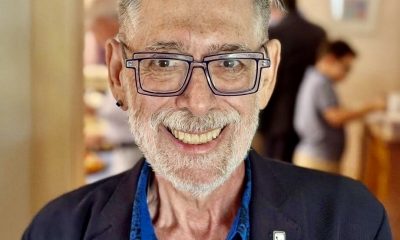
 Features4 days ago
Features4 days agoLGBTQ+ legal hero Jon Davidson hands civil rights torch to new generation
-

 Movies1 day ago
Movies1 day ago‘Cutaways’ and the risk queer cinema forgot
-

 Film4 days ago
Film4 days agoRevolutionary lesbian film “Rafiki” secures victory in fight against censorship in Kenya
-
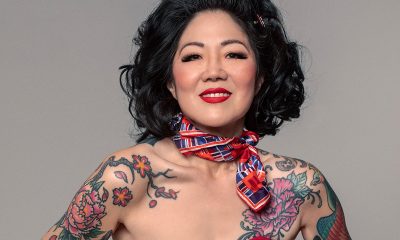
 Events3 hours ago
Events3 hours agoMargaret Cho joins headliner lineup for Lambda Legal’s queer comedy night
-

 Commentary3 days ago
Commentary3 days agoAre we addicted to yearning?
-

 Italy12 hours ago
Italy12 hours ago44 openly LGBTQ+ athletes to compete in Milan Cortina Winter Olympics
-

 Television4 hours ago
Television4 hours agoNetflix’s ‘The Boyfriend’ is more than a dating show
